Decorative Columns in Interior Design
Columns are no longer perceived as an attribute of the past. This incredibly expressive design element is increasingly becoming the highlight of modern interiors
In antiquity, a column was an architectural element solely used for supporting buildings. But over time, it acquired a decorative function and increasingly became an ornament for interior design.
Functional Purpose of Columns in Modern Interiors
There are several functions:
- Practical. The original purpose, which remains relevant today, is to support ceilings. A column acts as a structural support.
- Aesthetic. These refined architectural elements serve as room decorations. Moreover, vertical structures visually make the ceiling appear higher and expand the space.
- Hide unsightly pipes and wires. Nobody will even guess that inside or behind the column, there are unattractive utilities concealed.
- They can define zones in a room without cluttering it. Decorate the entrance, mark the dining area, or separate workspace and living room.
- Storage systems can be installed on columns: niches or shelves. This provides additional space for books, souvenirs, lamps, etc.
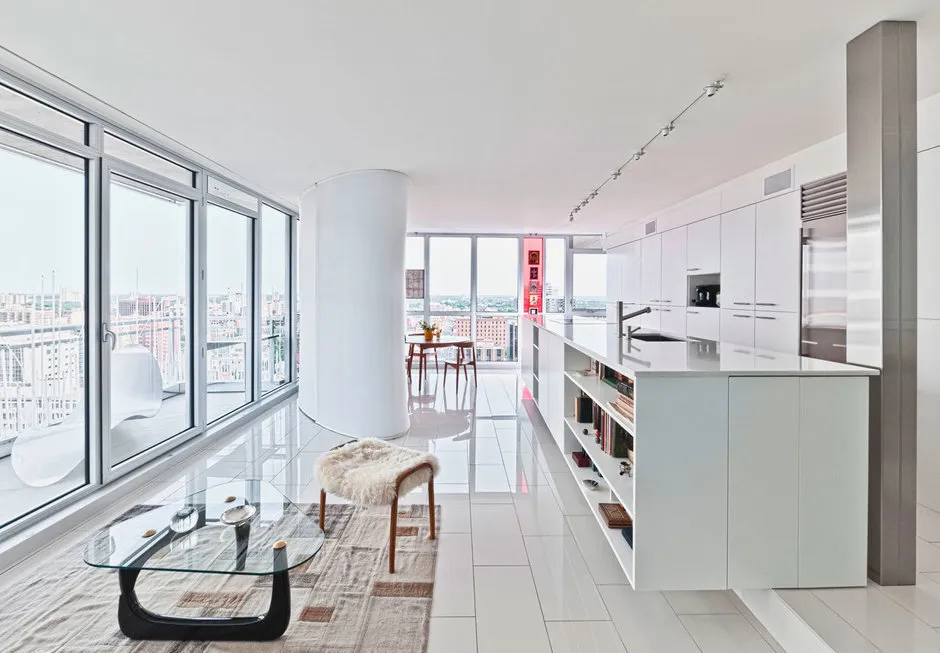 Design: Architects from Kariouk Associates
Design: Architects from Kariouk AssociatesMaterials for Manufacturing
Previously, architectural columns were made from marble, granite, malachite, and other natural stones. However, these materials are now rarely used due to their high cost and complex processing. Stone structures can be seen in theaters, expensive restaurants, galleries, and similar establishments. In private homes, natural stone is a rarity. It is used to create luxurious interiors. This is done in spacious rooms, otherwise the setting would look too ornate.
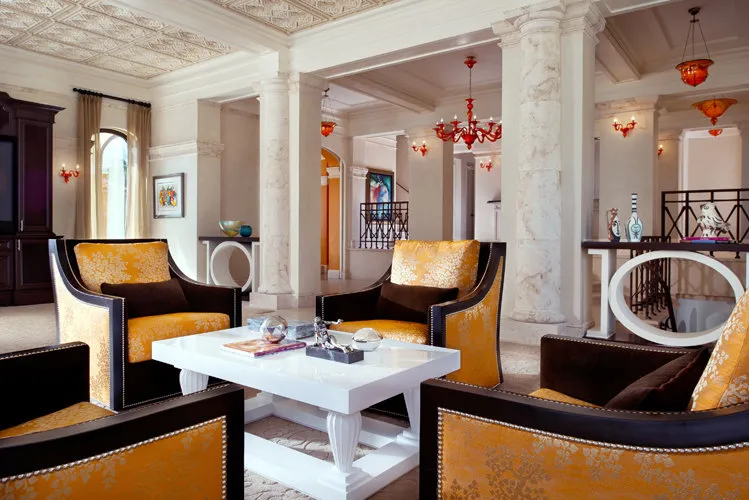
Concrete in Column Design
Decorative concrete columns are used for interior and exterior finishing. They can bear a significant weight. These vertical structures usually have simple forms: round, square, rectangular.
There are two types of such products:
Monolithic. Pouring sand-cement mixture into pre-prepared formwork occurs at the time of building construction, directly on the construction site.
Assembled. Structures are manufactured at factories and then transported to the installation site. This option is cheaper, but careful selection of the concrete product size is necessary.
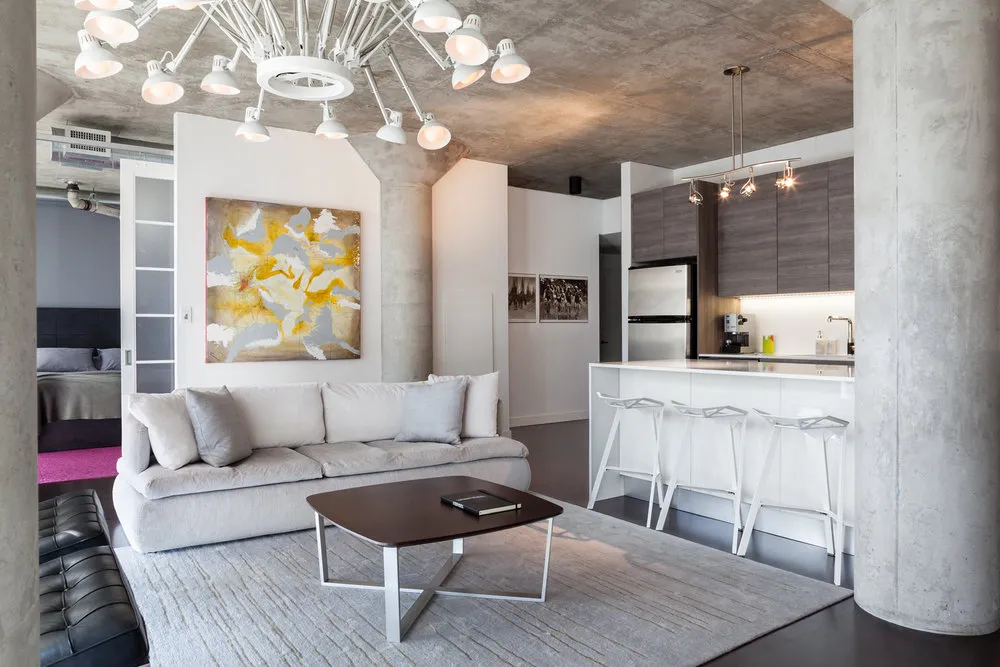
Wooden Finishing
Wooden columns in apartment interiors are often used for room decoration, although they can also reduce wall and ceiling load by supporting the ceiling and beams. These architectural elements blend well into any interior in ethnic style. Wooden products are also suitable for the following styles: cottage, Provence, rural, or eco.
They can appear as simple structures in natural shades or ornate pillars adorned with carving. Carved columns are a symbol of luxury. Only a few can afford them due to the high cost of wood and detailed ornamental work.
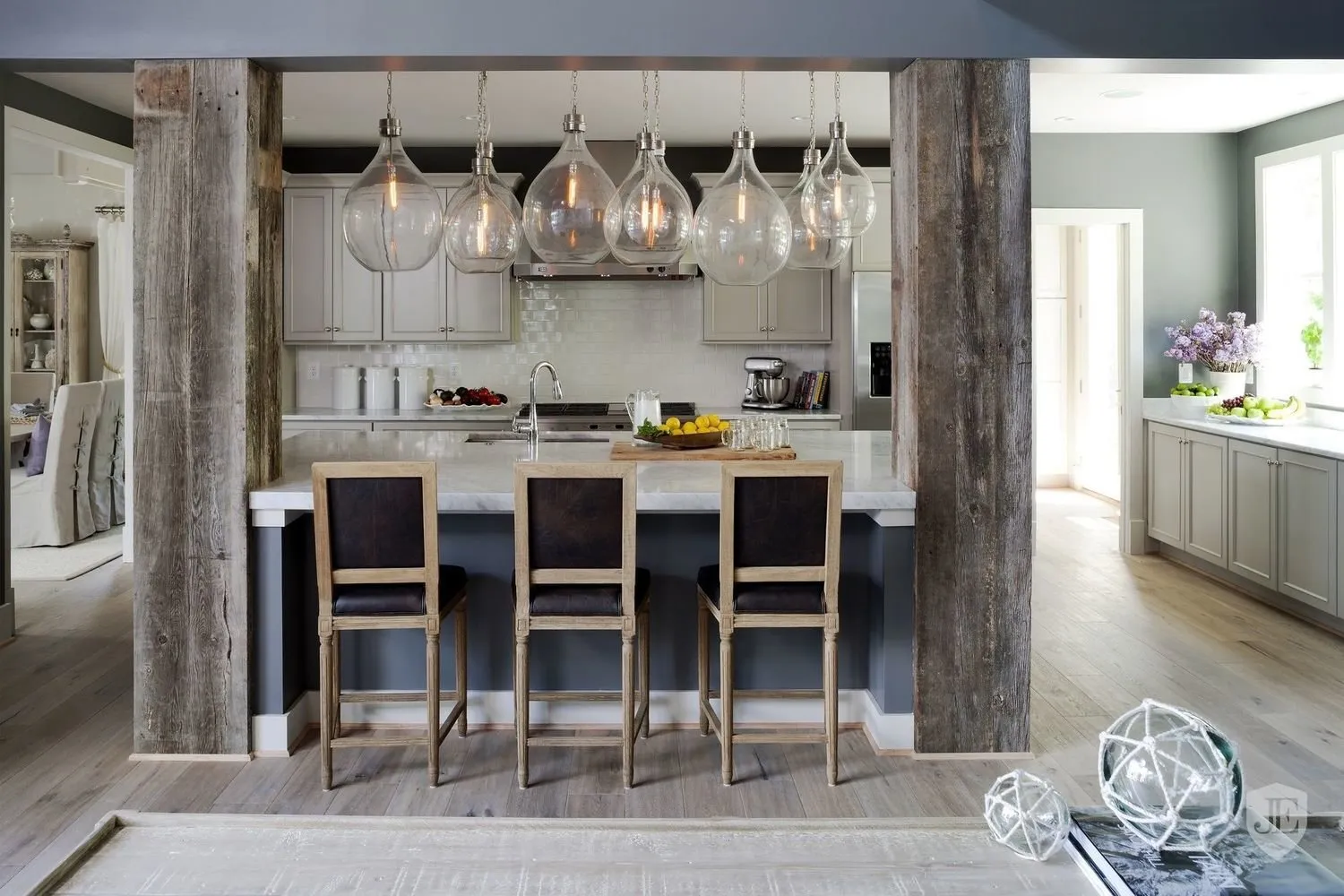
Gypsum Columns
Gypsum is a classic material used since ancient times. It is completely eco-friendly as it is a sedimentary mineral. Finished gypsum products are relatively light, yet strong and durable. Advantages include hypoallergenic properties and fire resistance.

Polyurethane in Practice
Decorative columns made from polyurethane are also popular among manufacturers. Polyurethane is easy to handle, so even beginners can manage it. The material is lightweight and malleable, and it can be cut with a regular saw. In terms of appearance, it rivals natural analogs.
Polyurethane is an ideal choice for those who want to quickly and cheaply install a decorative column. Installation is simple. Ready-made products or even parts can be purchased if you want something unique. Many craftsmen also create polyurethane structures on order, based on customer sketches.
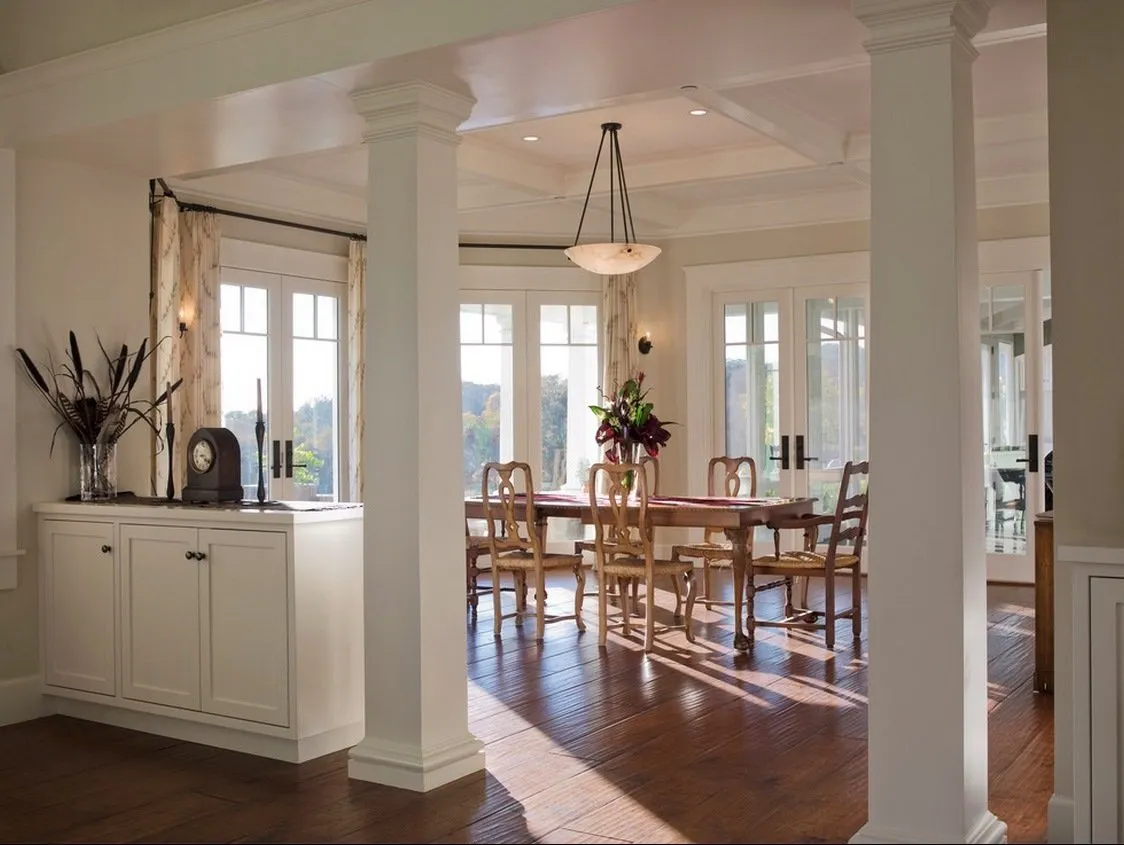
Structures made from polyurethane are durable and reliable. They can be painted and decorated with various decorative elements of any shape and size. This allows creating a column that fits any interior.
Disadvantage – short lifespan. After several years of use, the coating color noticeably changes, and the material starts to crumble with any mechanical impact. However, since the price is low, a damaged item can be replaced.
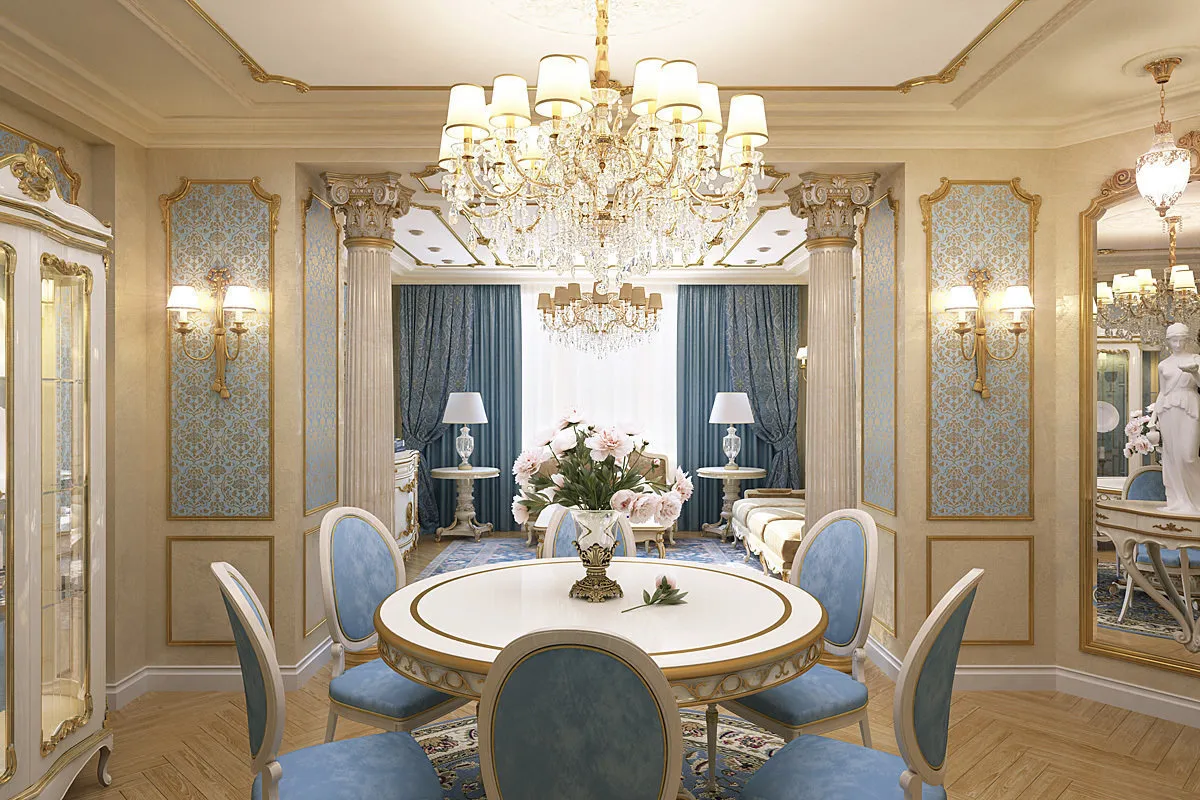
Metal in Interiors
Metal columns are often seen in modern interiors where practicality takes precedence over aesthetics. Metal items blend well into minimalist, loft, hi-tech, and similar styles.
The structures can have any shape but are usually square or rounded. In residential spaces, silver-toned metal is most commonly used, as well as white or black. Stainless steel products dominate.
The material is incredibly strong and reliable. If the column coating is galvanized, they can be safely placed even in rooms with high humidity levels.
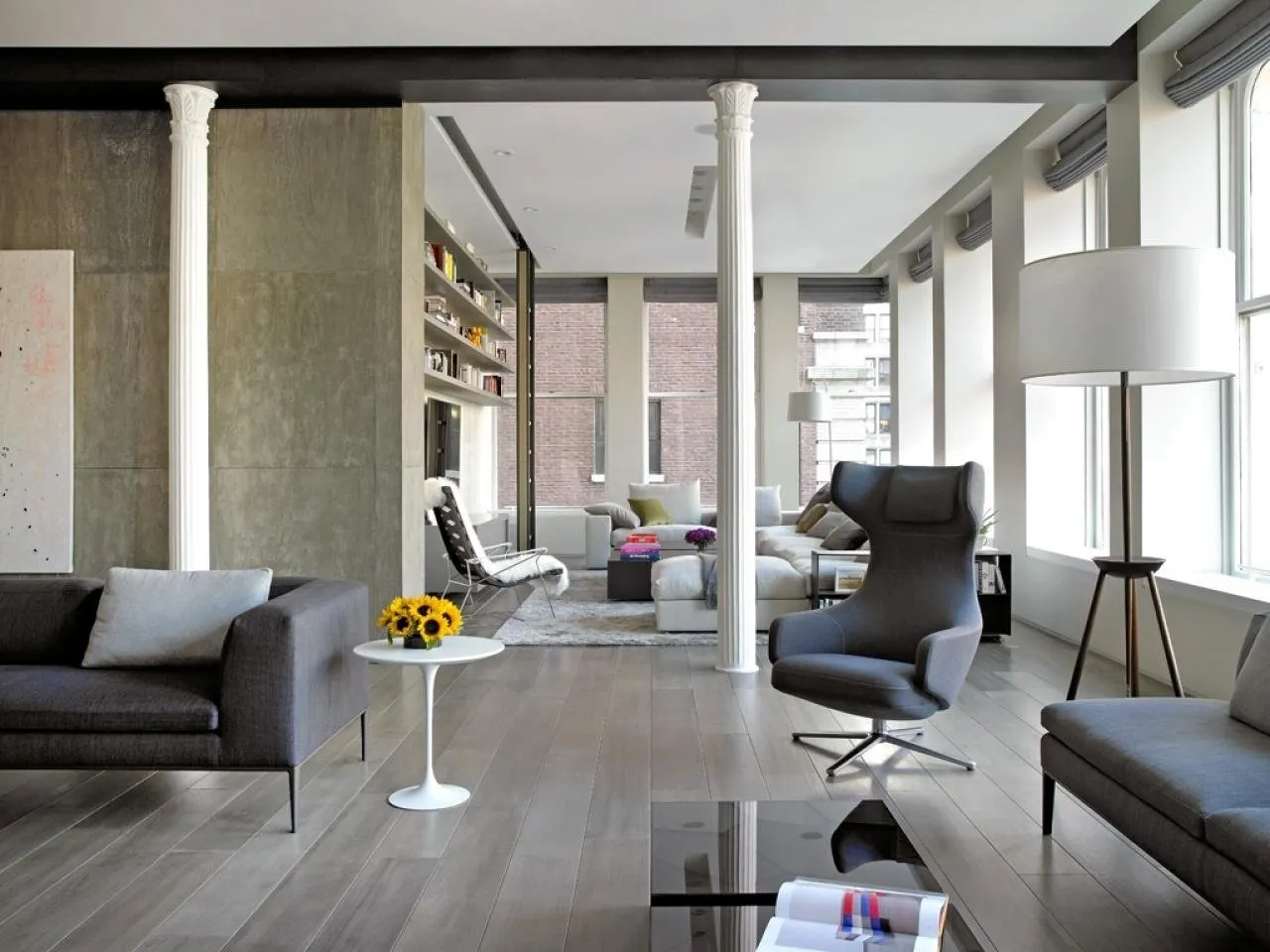
Polystyrene for Finishing
Polystyrene is the most budget-friendly option for a column in an apartment. The material resembles polyurethane foam but is less durable and dense. Polystyrene items can be purchased ready-made or in parts. Lightweight columns serve solely as decorative elements.
The structure does not necessarily have to be volumetric; polystyrene pieces are often glued directly to the wall. If the ceiling height is high, building a column may require parts. In this case, ensure there are no visible joints between the details.
Decorative elements can be cut from polystyrene and glued to the appropriate parts of the structure. A finished column should be coated with 2 layers of spackle; after drying, it will look like gypsum. Mat paint can be purchased and the structure painted in a contrasting color to the walls.
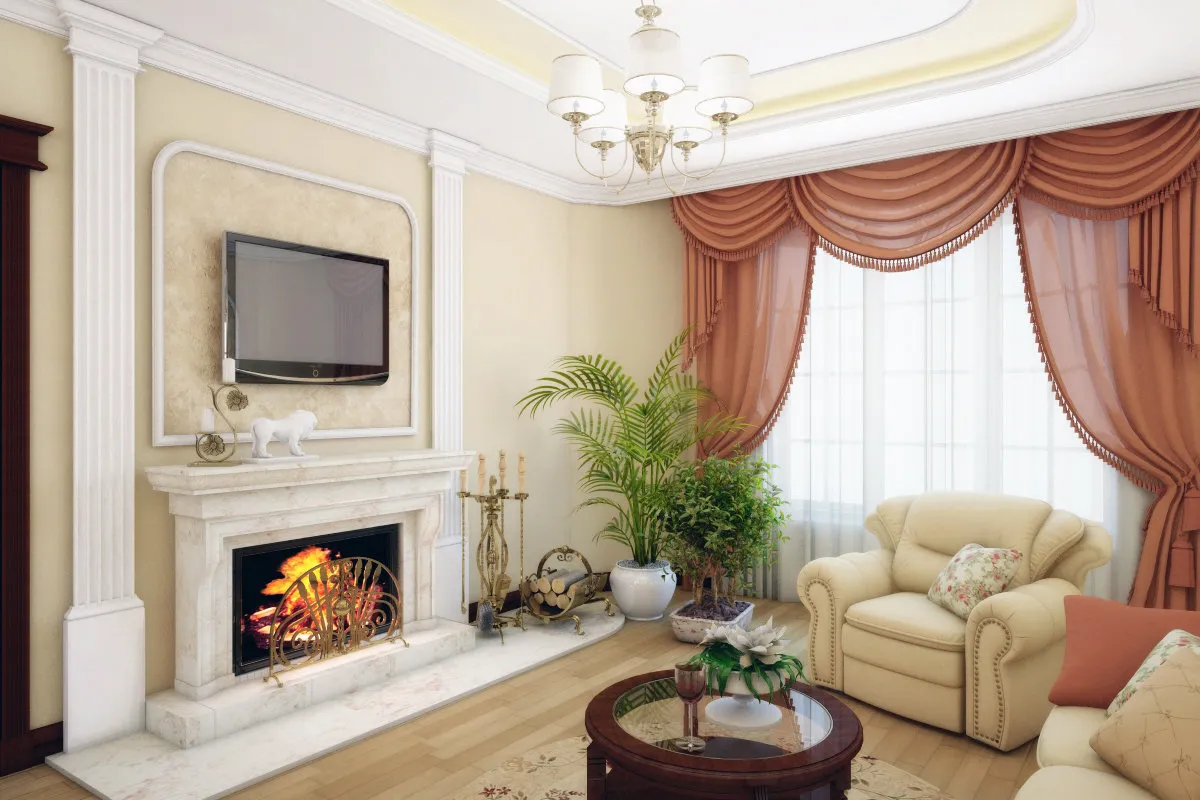
Gypsum Board and Its Capabilities
Columns made from gypsum board can be quickly created at home. The material is versatile, and various structures can be made from it. However, gypsum board is most often used for rectangular forms with minimal decoration. Decorative niches and arches can be added to strict lines, where lighting fixtures, souvenirs, or photographs are placed.
The smooth white surface of the column can be left as is or clad in wood or stone. The resulting structure will look no worse than an expensive item, but its price will be significantly lower. Gypsum board can also be spackled and painted with any finishing material – wallpapers, tiles, plaster, paint.
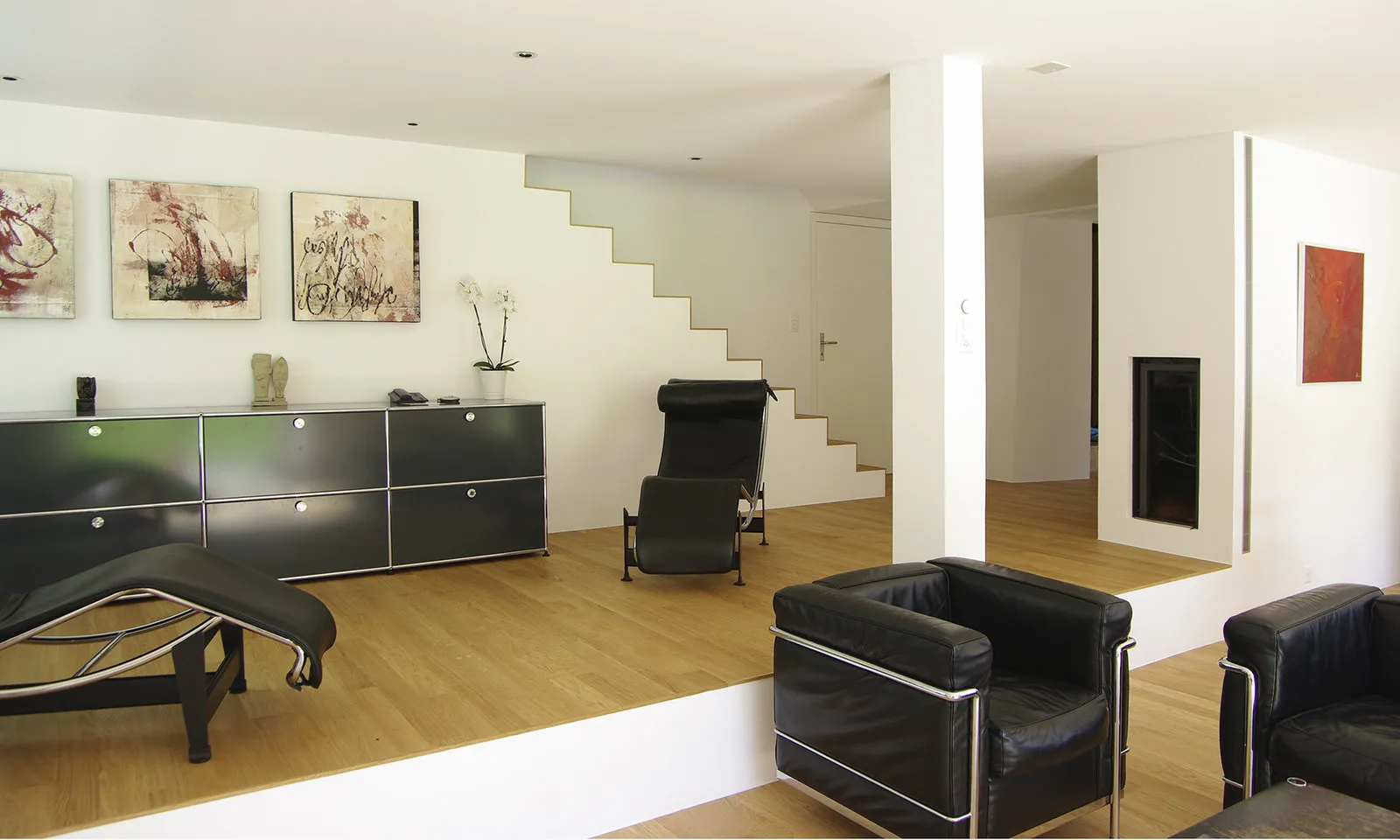
Rounded gypsum board columns are installed in classical interiors or rooms in Provence style. They can be enhanced with relief decorations.
Decorative columns and half-columns made from gypsum board are relevant in small apartments. They are less bulky than natural analogs but look equally attractive.
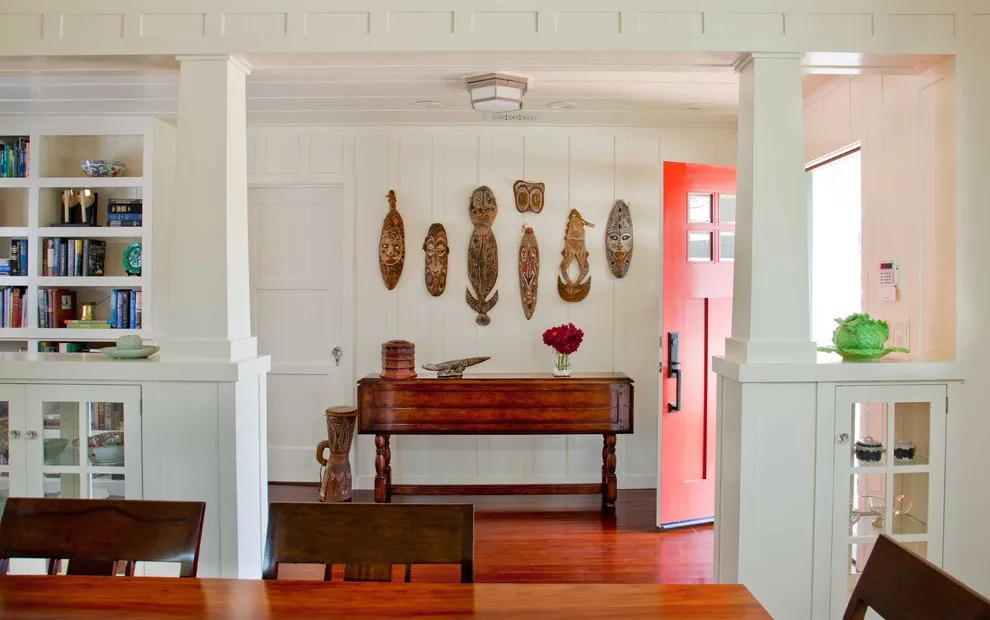
Interior Style with Columns
Well-chosen columns can highlight the stylistic features of an interior and give the room’s design individuality.
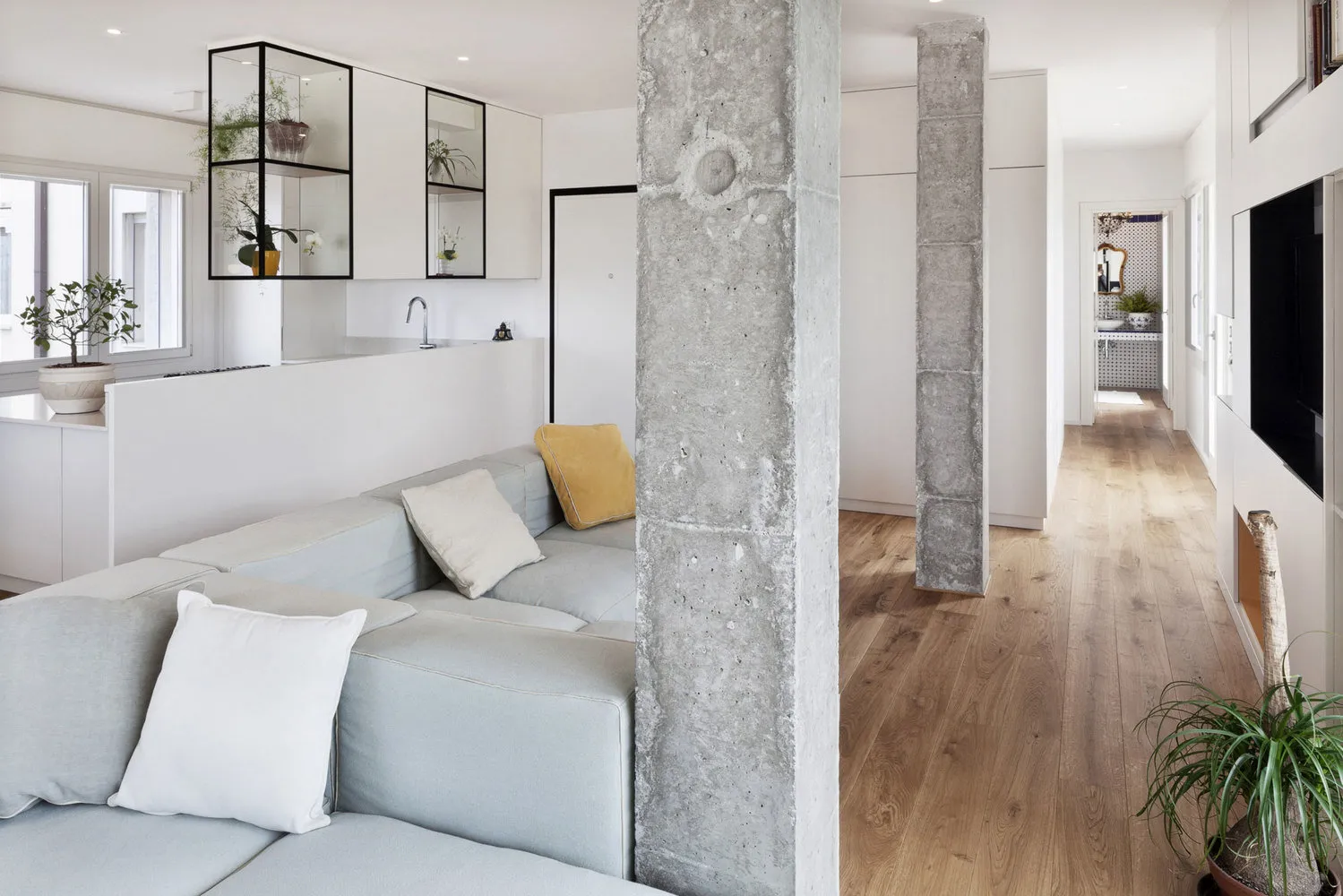
Classical Style
The classical style in interior design implies simplicity, refined decoration, and clean forms. Pure white columns made of gypsum or polyurethane foam look appropriate and neat. Elegance can be added with moldings. The surface is often finished with Venetian plaster or painted to resemble marble or another natural stone.
A characteristic feature of this style is symmetry. Therefore, supporting elements are often arranged in pairs. Vertical structures can represent a composition where parts are connected with arches.
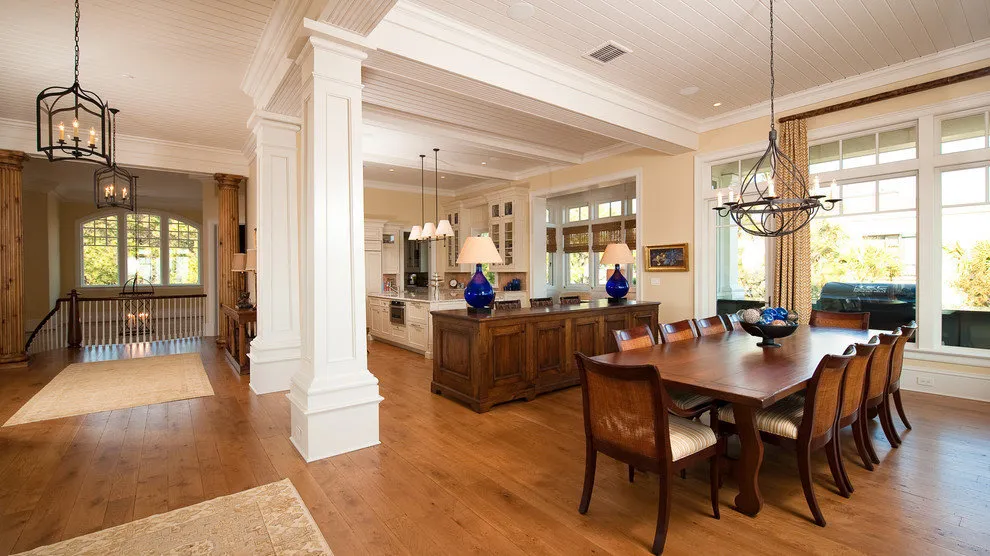
Eastern Style
Columns in Eastern interiors are an essential element of architecture. Usually, this is a colonnade where parts are connected with pointed arches. These constructions look impressive. Unlike classical ones that appear restrained and majestic, arched curves and columns are abundantly decorated with lines. The surface of the items is brightly clad in mosaic, adorned with whimsical moldings, ornaments, and colored inserts. These architectural ensembles are completed with stained glass windows and textile draperies.
The Eastern style is very suitable for studio apartments. Absent walls can be replaced with columns. They divide the space into rooms, taking up little space, not obstructing natural lighting, and becoming a highlight of the living space.
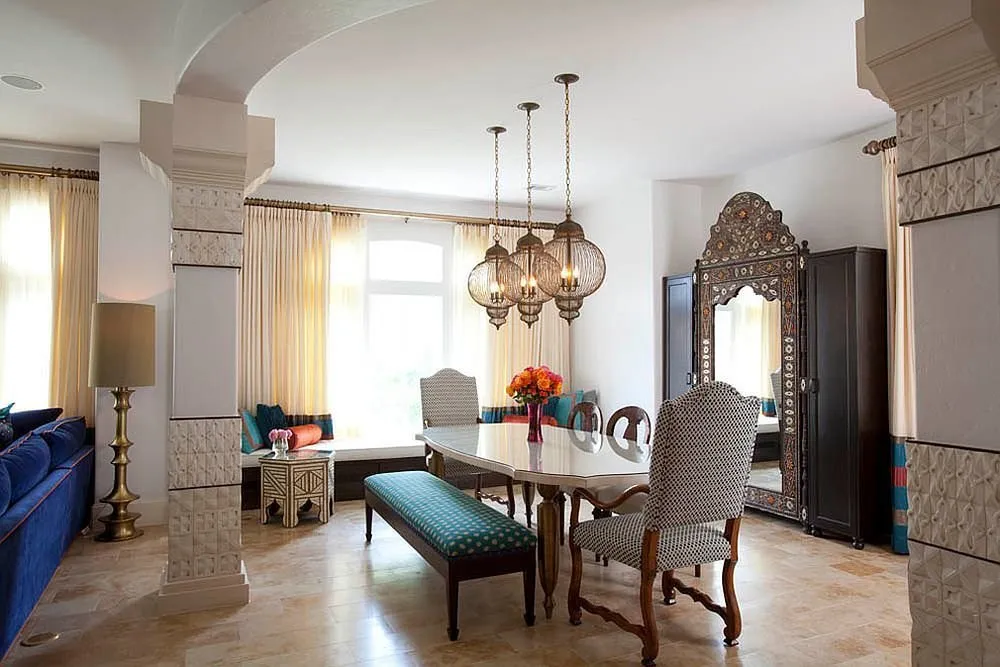
Modern Styles in Interior Decoration
Some styles require large open spaces, and columns in such rooms serve as supports. Visually, they differ significantly from ancient constructions. These are usually rough-finished concrete, metal, or deliberately aged brick columns.
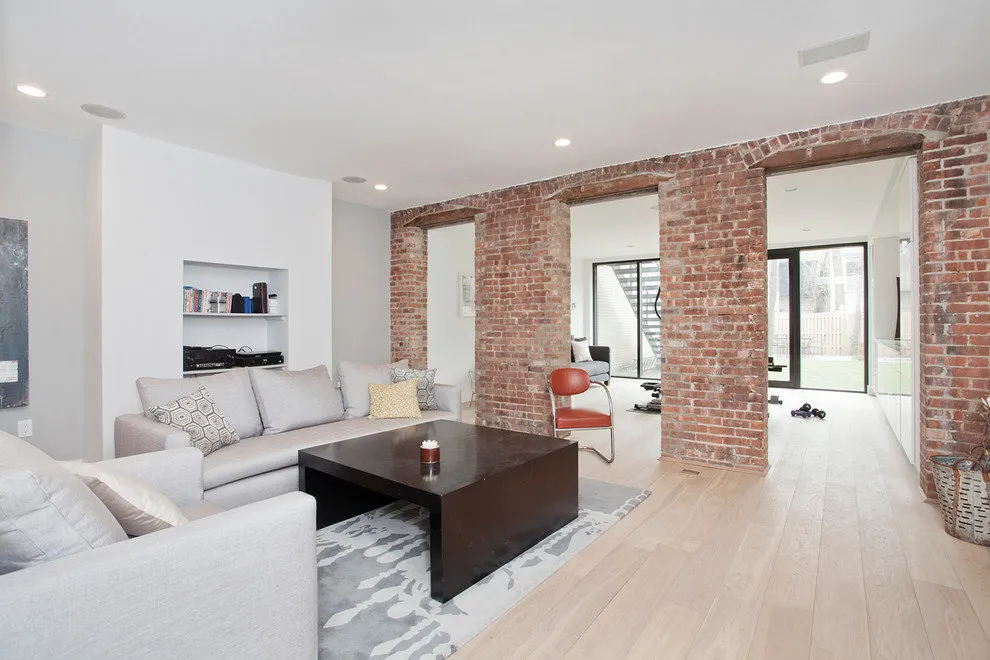
Decorative columns in the loft style are simple rectangular forms. For finishing, concrete, untreated wooden planks, or brick is used. The surfaces look rough to convey the spirit of abandoned factories and workshops.
Underground style is similar to loft, but the source of inspiration in the former case is warehouse spaces, whereas in the latter, it’s basements. Vertical structures in underground style are a good find because they are not too overused architectural elements. Columns are often finished with stone, concrete, or brick.
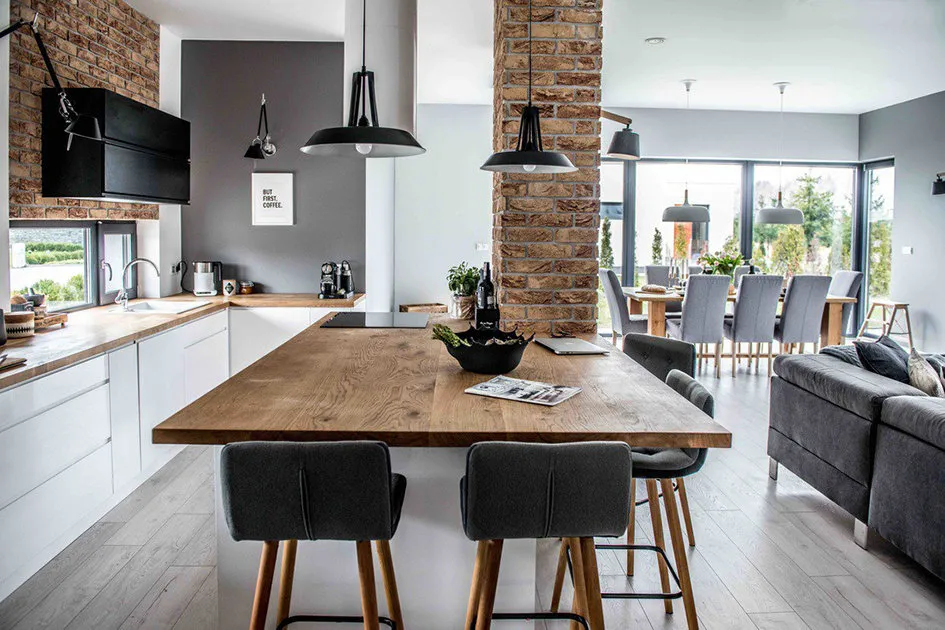
For hi-tech style, supporting structures are not necessary. But columns made of shiny metal will add a special charm to the room. If chrome finishes are not to your liking, consider glass. A column in the shape of a large cylinder filled with liquid will look very futuristic. The beauty of rising air bubbles can be accentuated with lighting.
In minimalism or modernism, installing supporting columns instead of closed partitions can take you away from conventional solutions. Unusual form or eye-catching color will make them the center of attention.
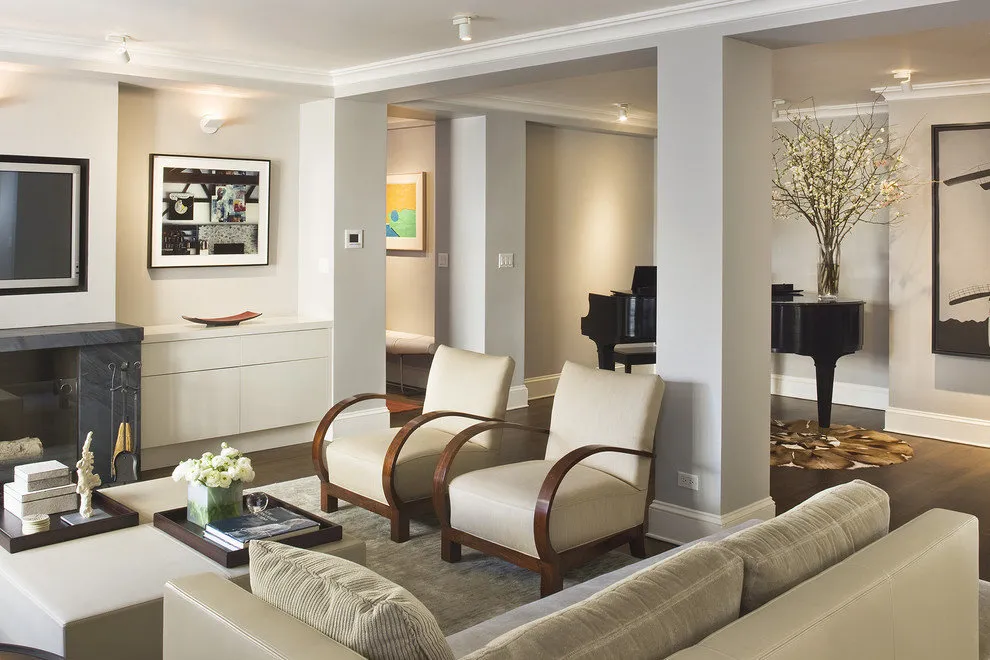
Rural Style
Practicality and simplicity are characteristics of the rural style. Columns are made from wood, natural stone, or imitations of these materials. Supporting structures do not have complex forms; they are usually square or rectangular. These can be products made from timber or unprocessed logs. The surface can be unfinished and unpolished. This makes the column look as natural as possible, bringing natural motifs into the interior design. Wood carving is also allowed.
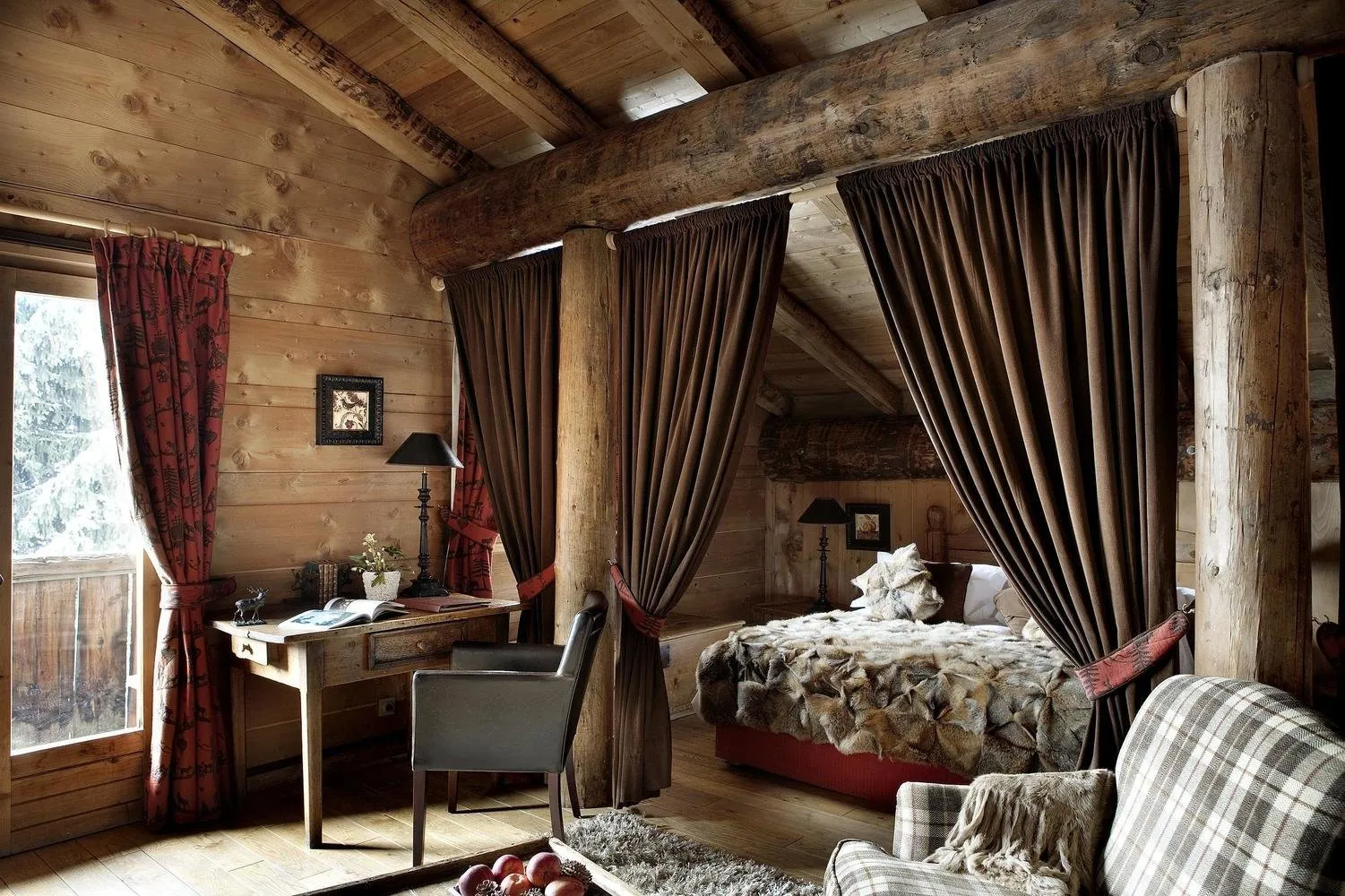
How to Hide an Unneeded Column
Lately, apartments with open floor plans are more frequently built. In such spaces, a load-bearing structure cannot be avoided. It is rare that the support is placed conveniently. Usually, a massive column rises in the center of the room. There are several ways to turn an unwelcome element into a fitting part of the interior.
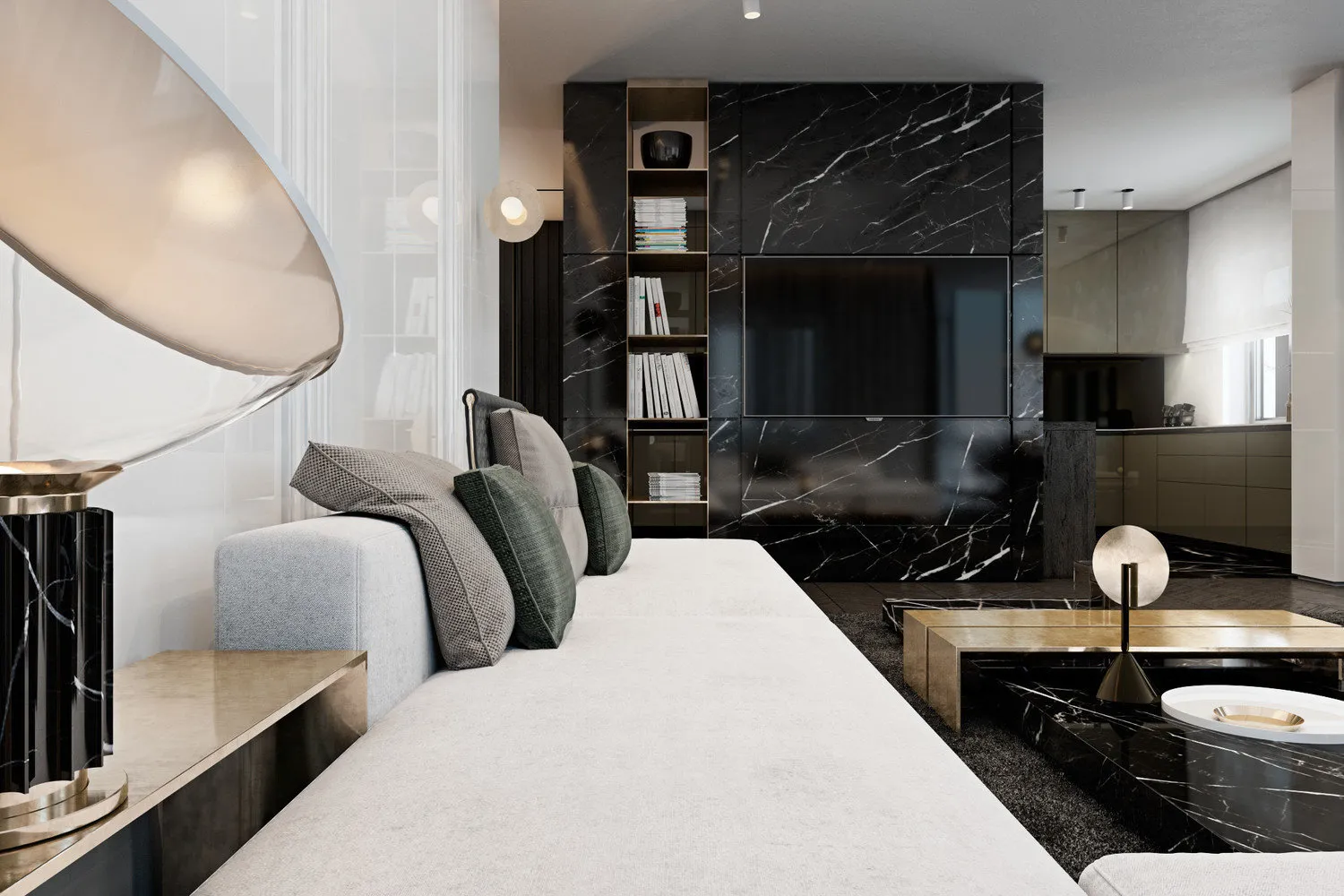
You can try to make the support invisible. For example, hang curtains, cover it with a screen, or place a cabinet so that the column is inside it. Alternatively, paint or cover it with the same finishing materials as the walls to avoid drawing attention to it. You can also clad the surface with mirrors. A column with mirror finishing will add volume to the room, and it will seem to “dissolve” into space.
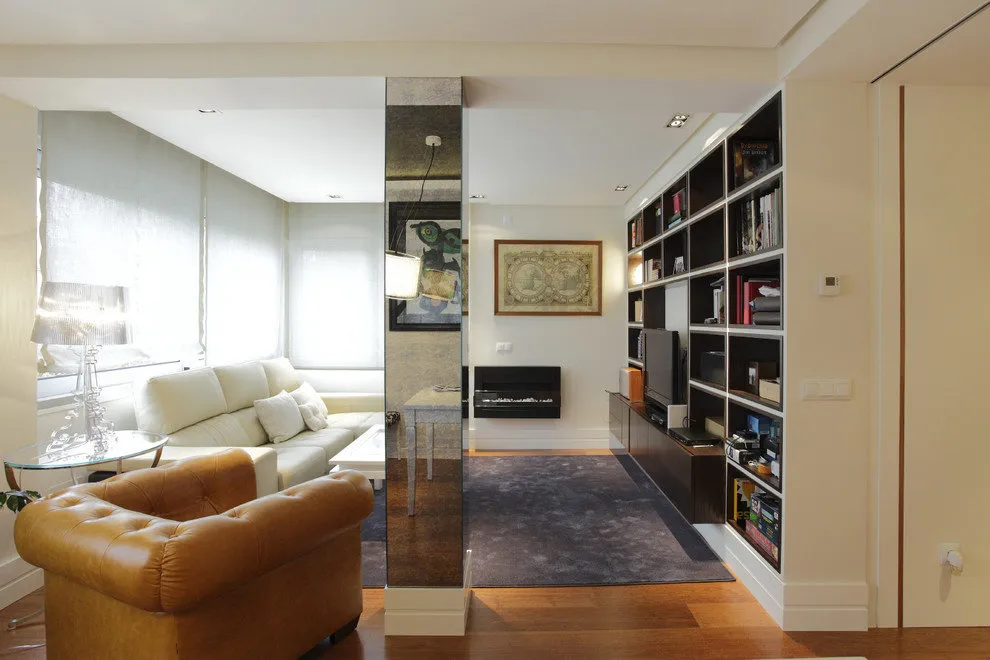
You can add functionality to the column. If it is coated with magnetic chalkboard paint, it will become a place for drawing or writing notes. The column can be turned into a TV zone by hanging a television and related accessories on it.
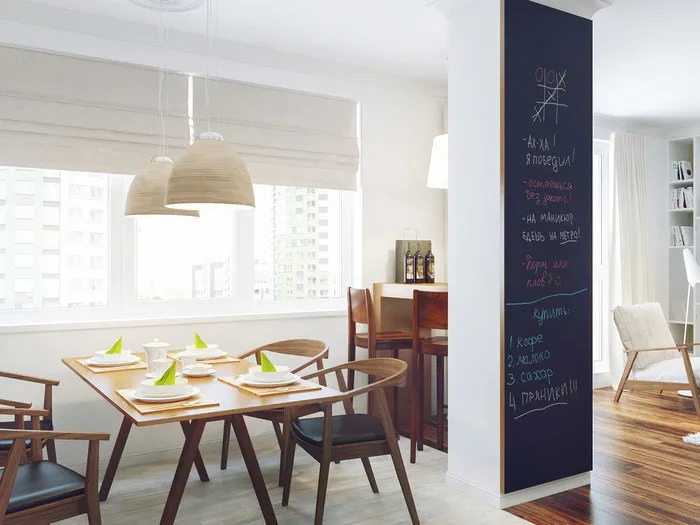
Adding niches or shelves will give you a convenient cabinet. Depending on its location, it can store books, records, photographs, paintings, wine bottles, beautiful dishes, and more. The structure can also be used as a backrest for a bench located nearby.
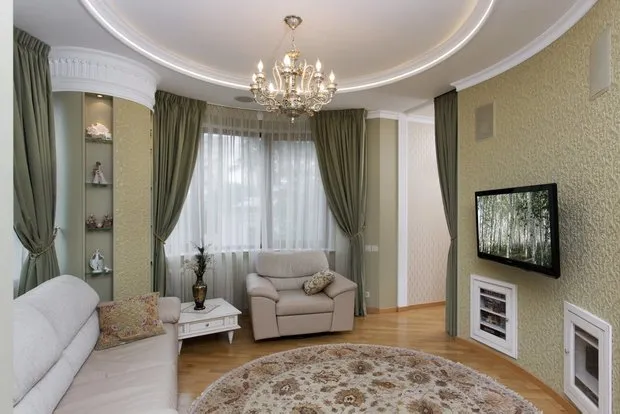 Design: Mikhail Egiyan
Design: Mikhail EgiyanDecorating Columns
Columns can be decorated to make them unique architectural elements. Sometimes just plastering and subsequent painting will suffice to avoid overloading small spaces. Painting the structure in a vibrant color creates an accent element in the interior.
Original column finishing is mosaic. It is preferable to use small-sized tiles. The texture and color can be completely different. It is advisable not to stop here and use the same tiles for additional accents in the room. For example, lay the door frame or make a frame for a panel.
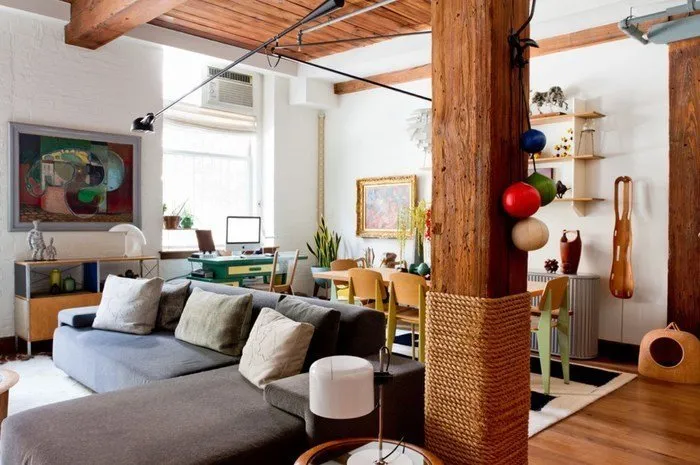
A large column can be decorated with stone or wood. It can also be wrapped in coarse natural rope – this looks stylish and is useful if you have a cat at home.
Of course, these are not all the ways to decorate. Be creative. Decorate the surface with favorite posters, drawings, or hanging plants, and make beautiful lighting (this can even be a regular string of lights).
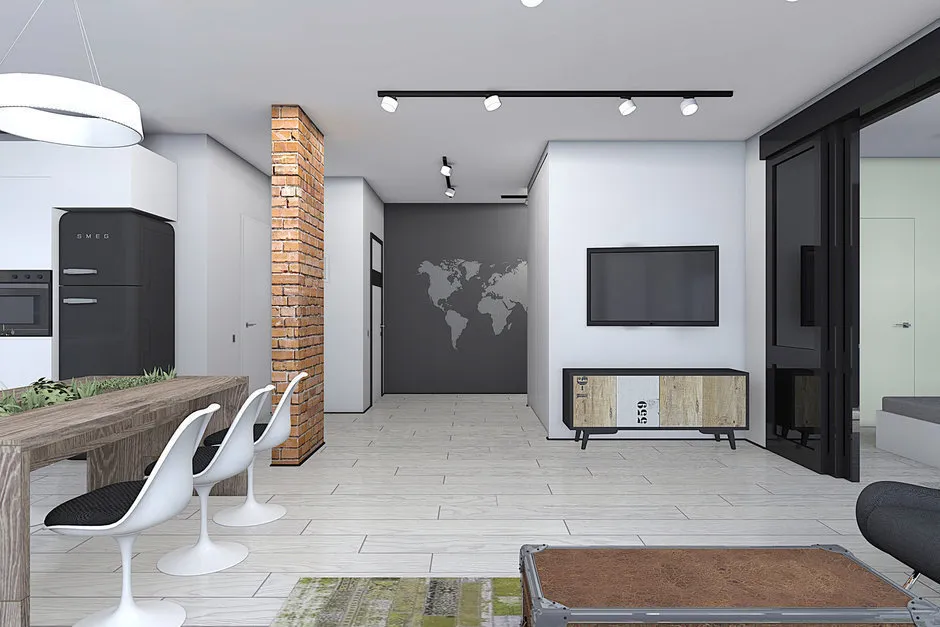 Design: Lena Dyrinina and Ira Vasileva
Design: Lena Dyrinina and Ira Vasileva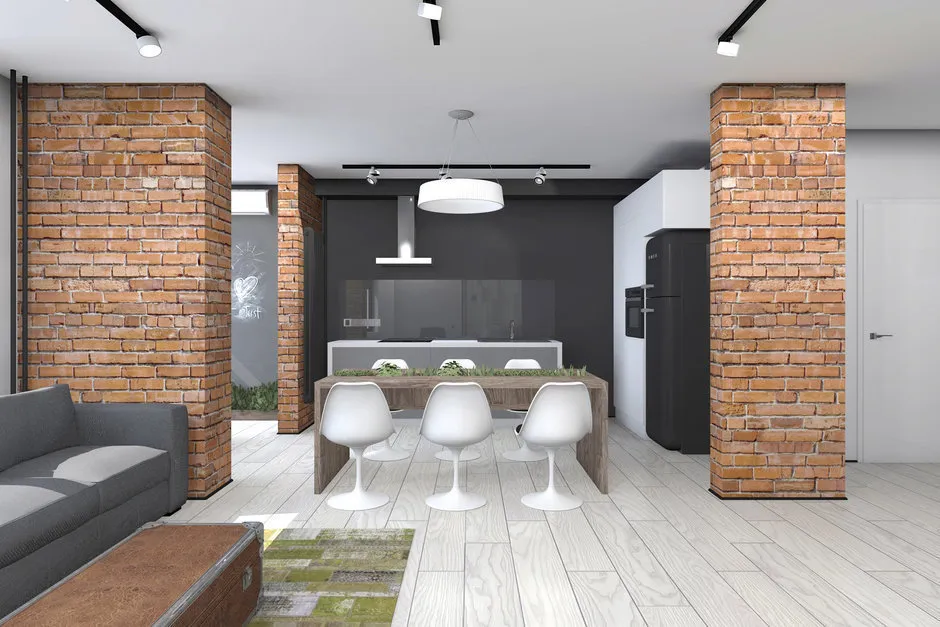
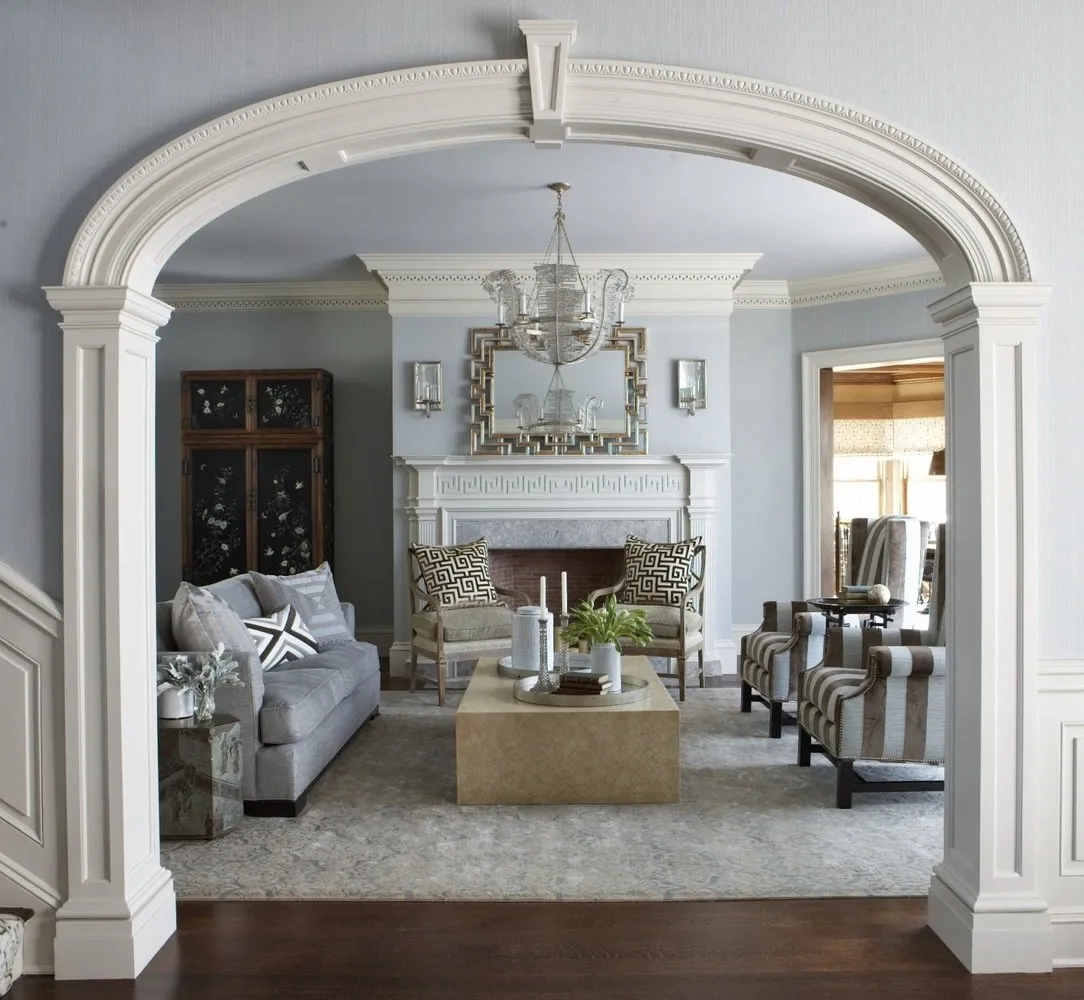
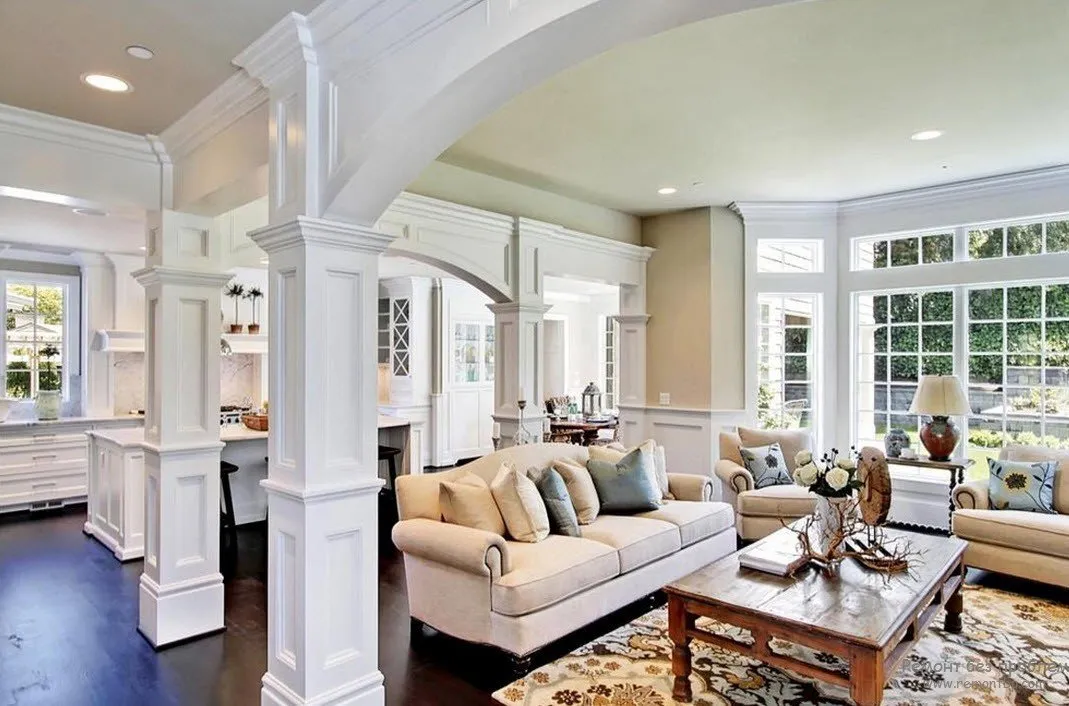

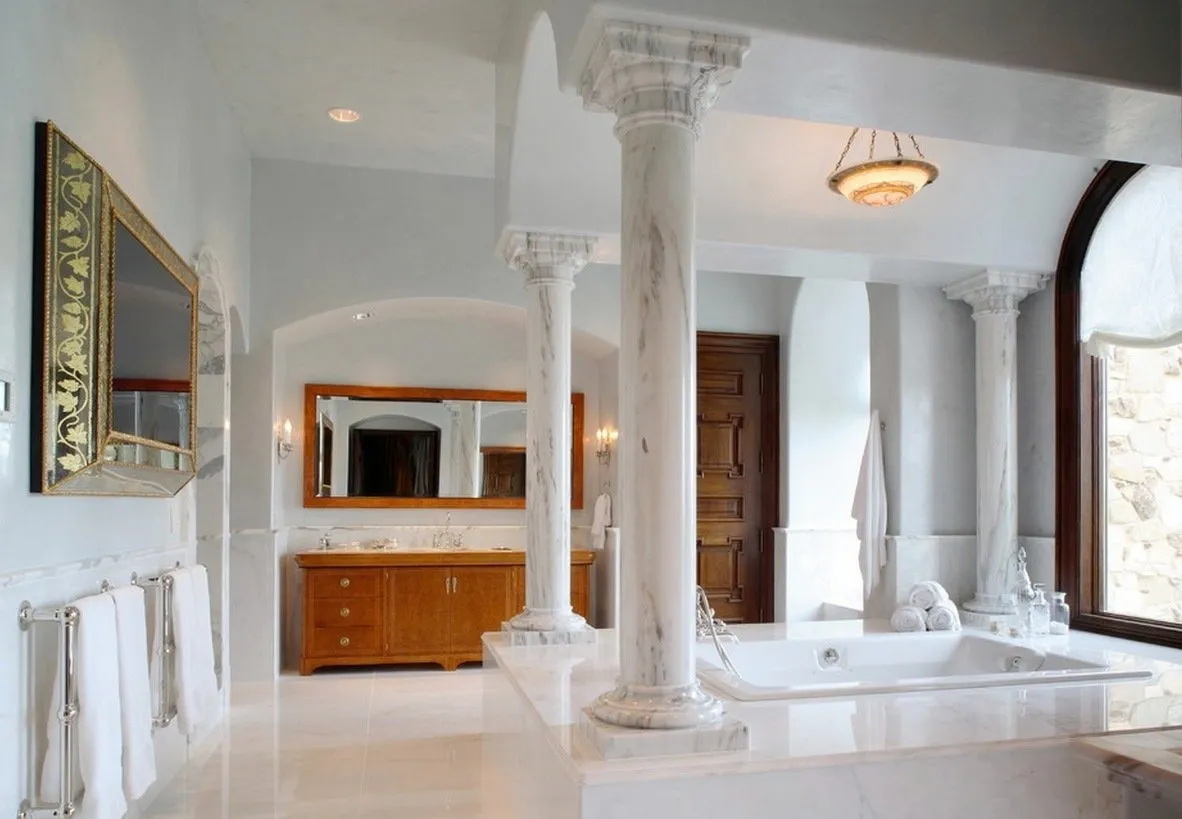
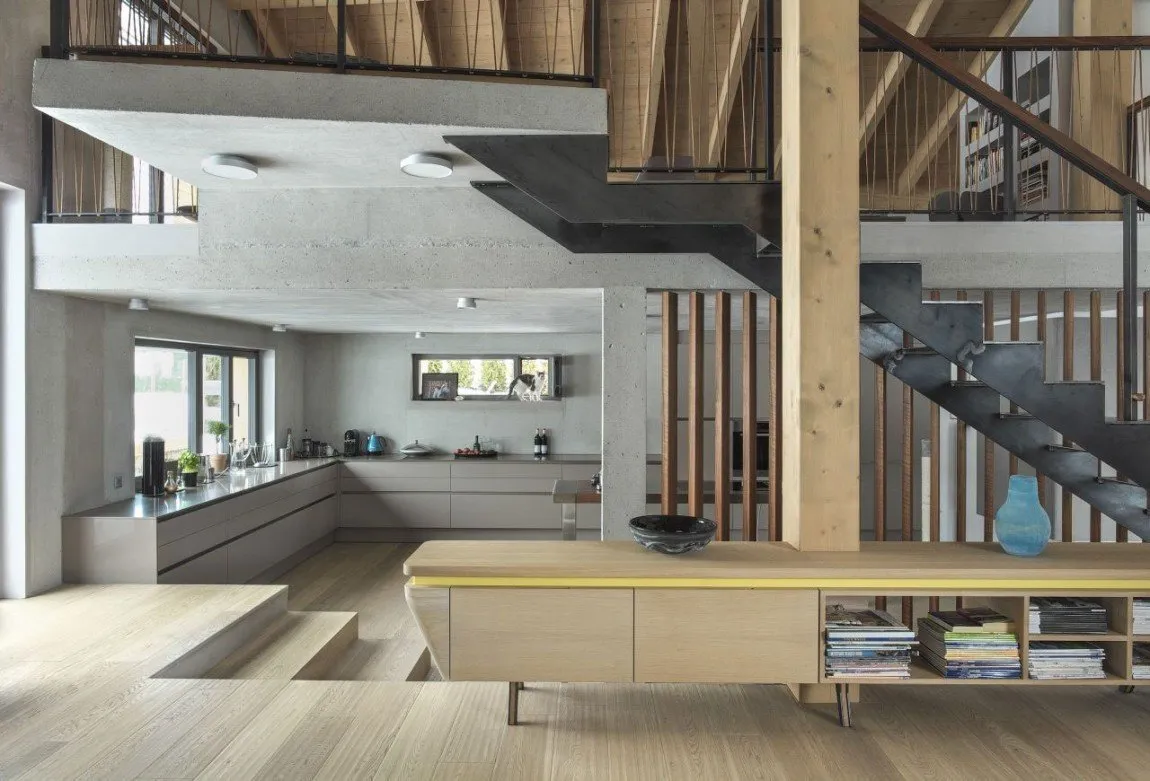
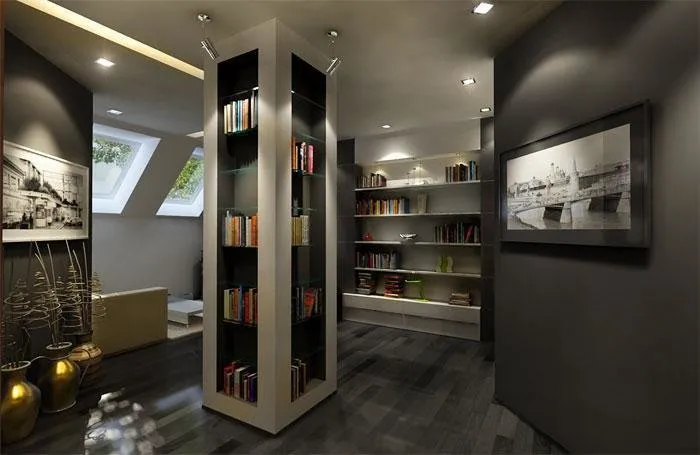
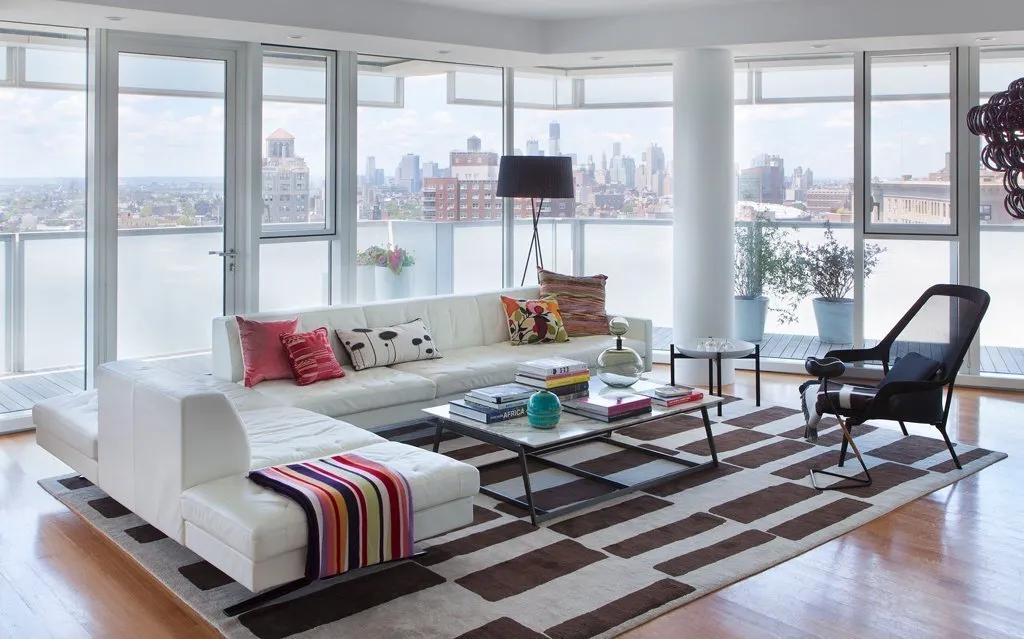
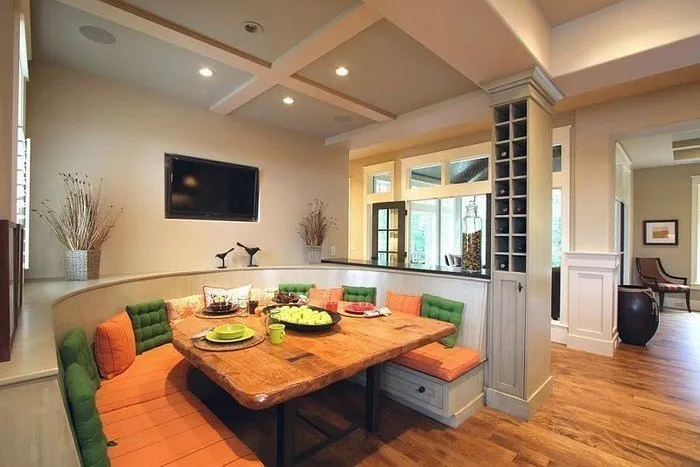
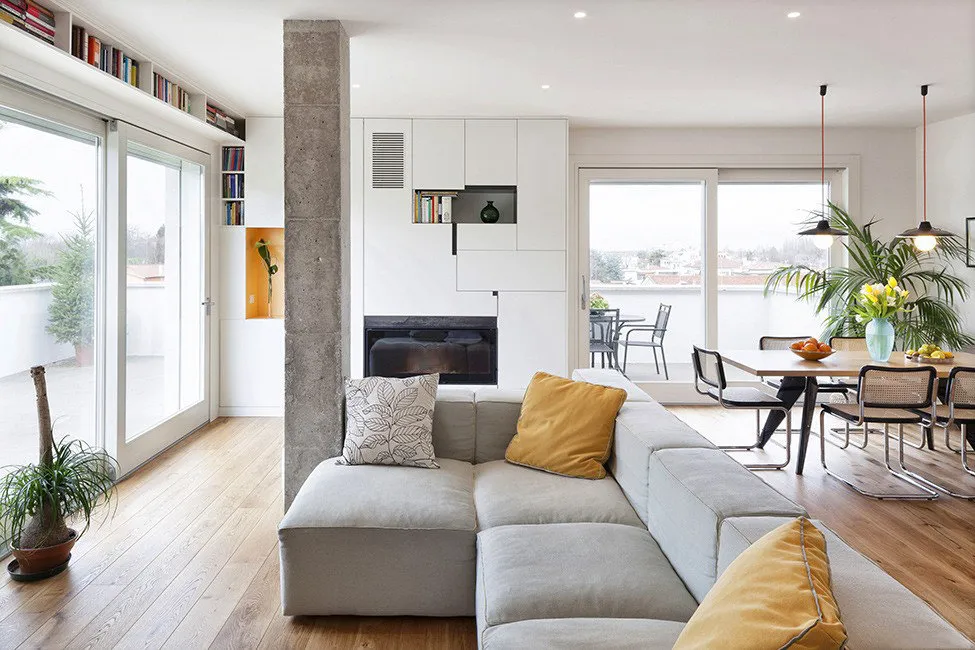
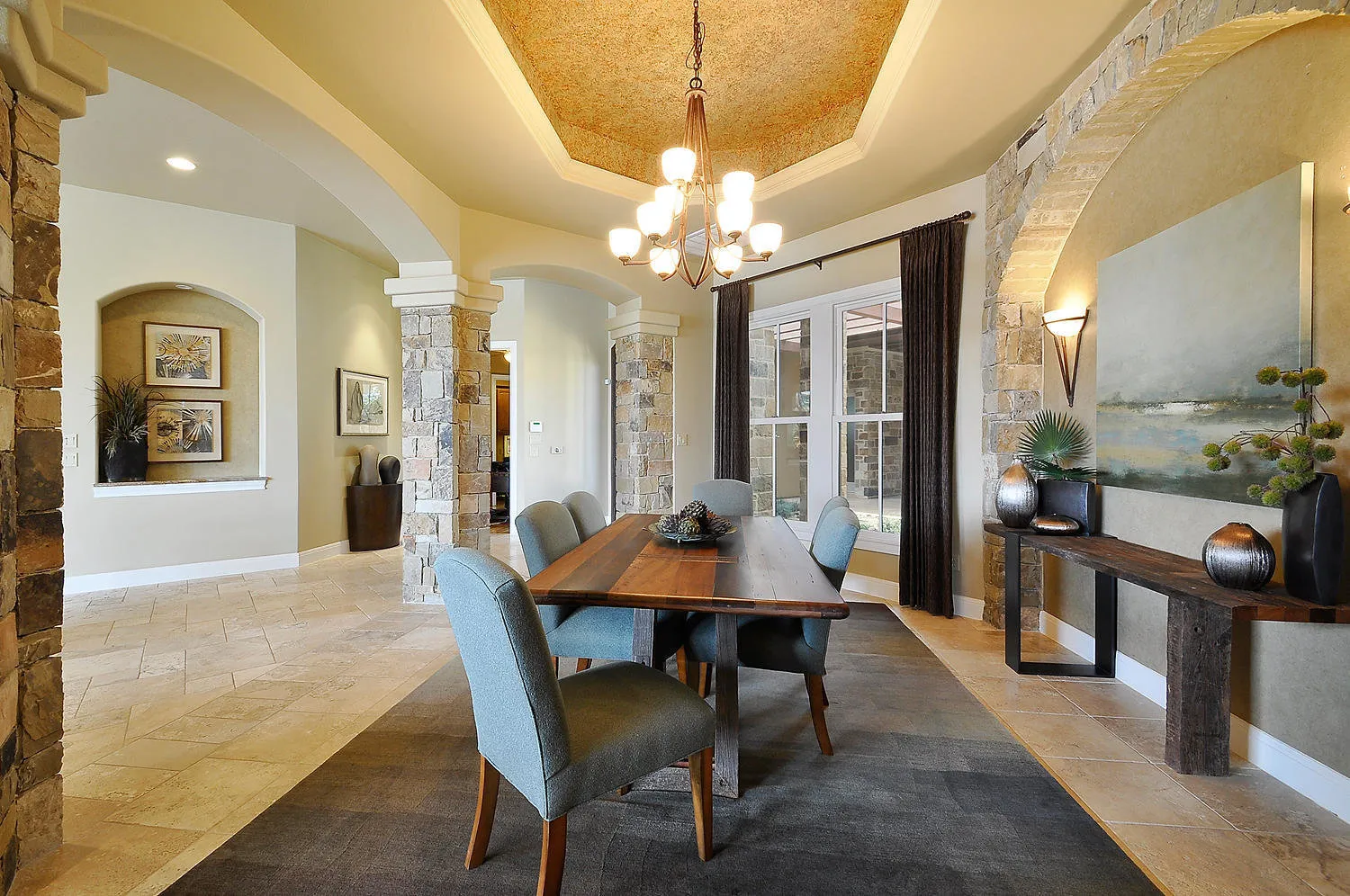
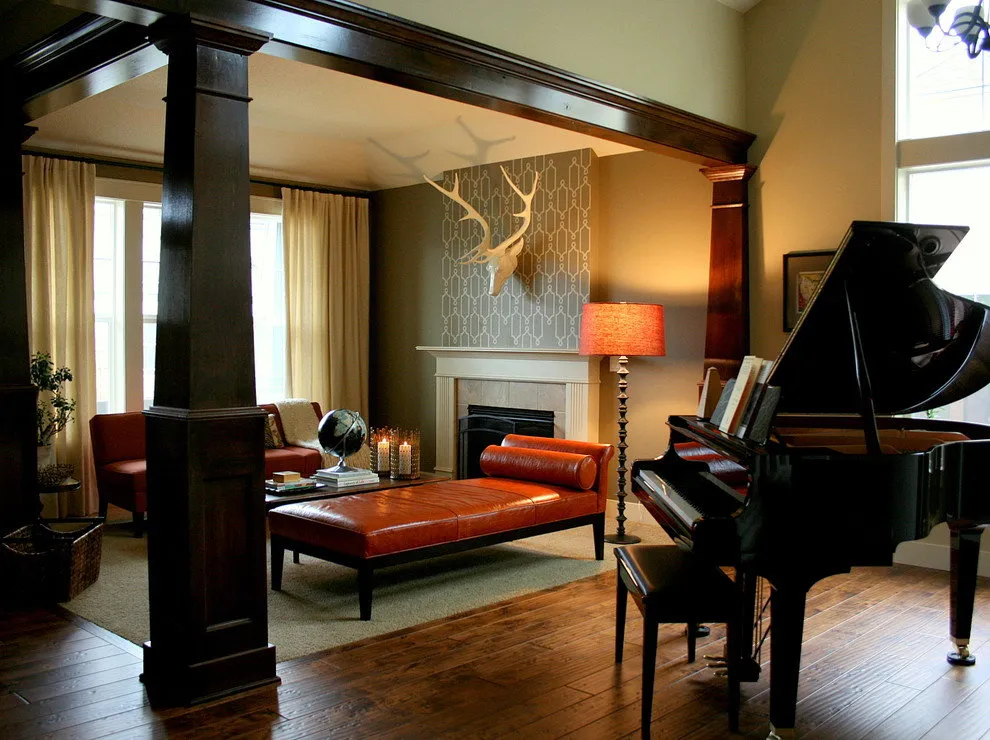
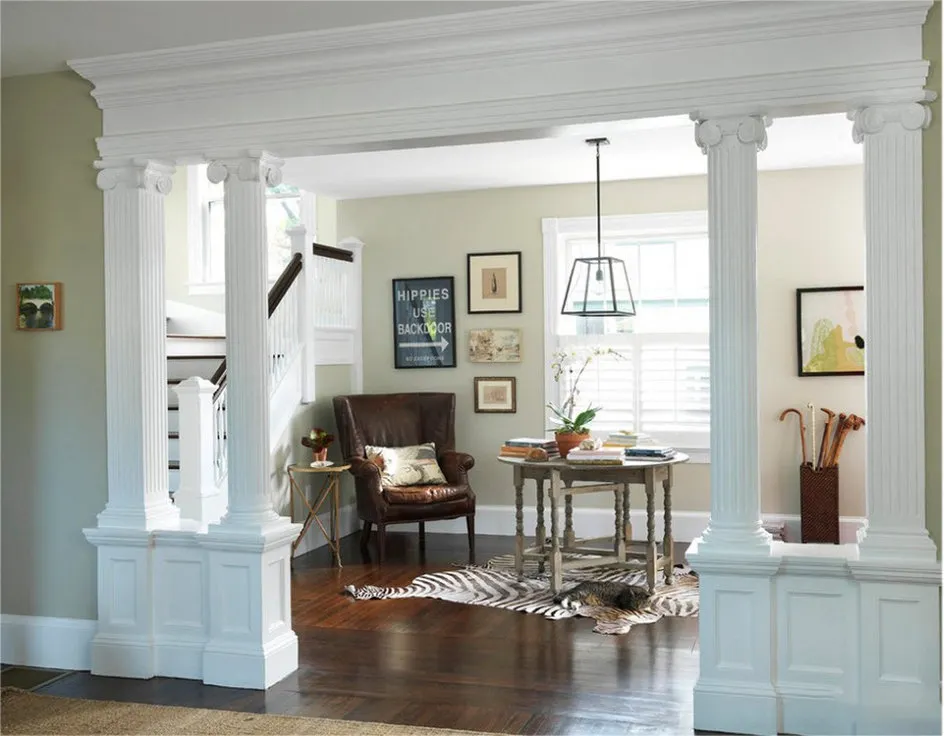
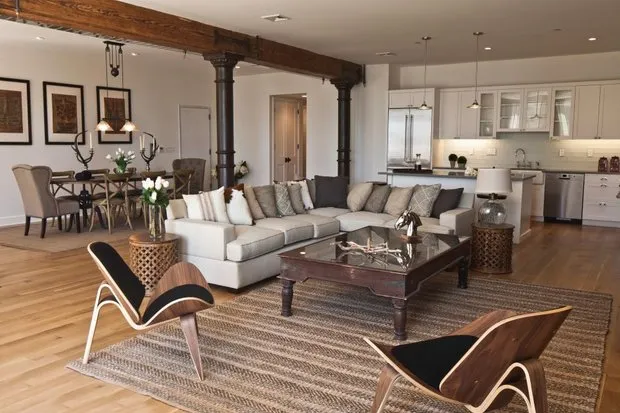
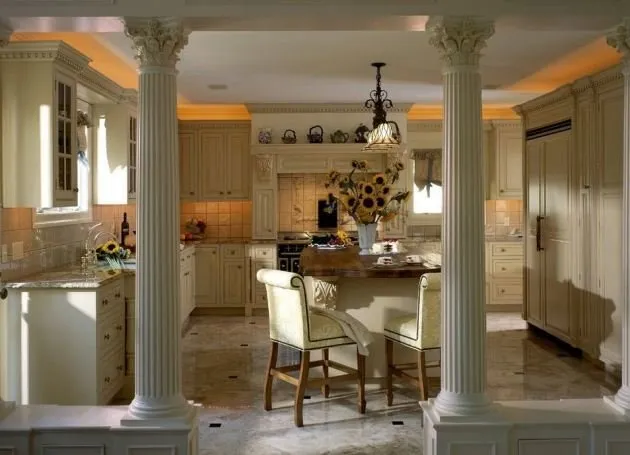
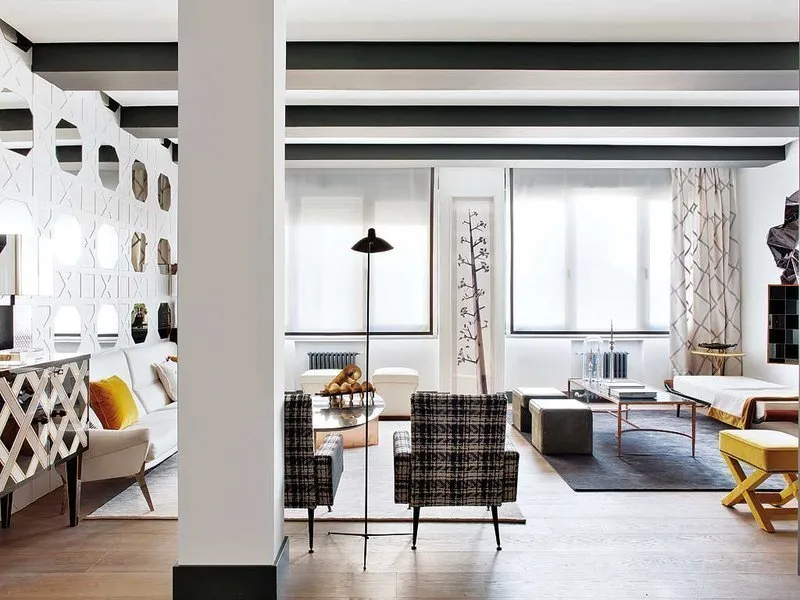
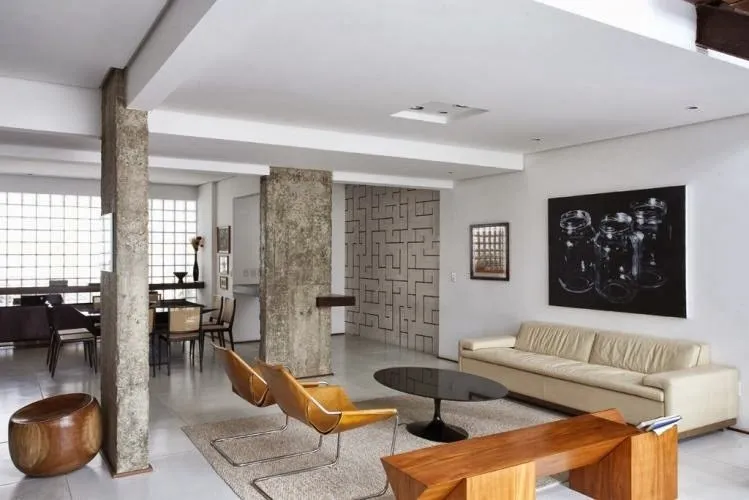

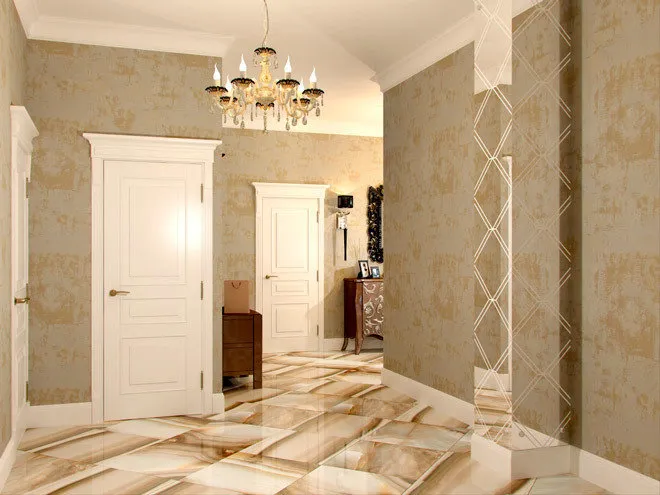
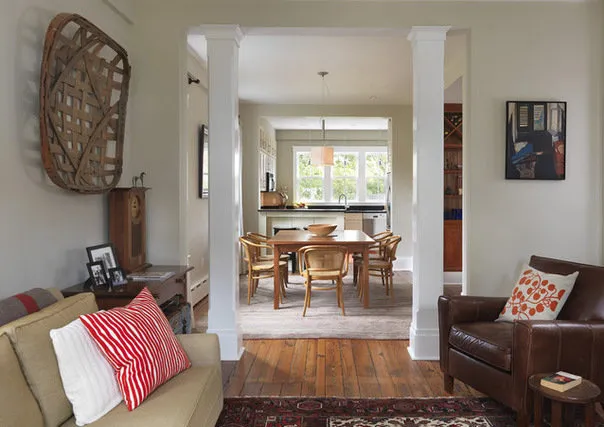
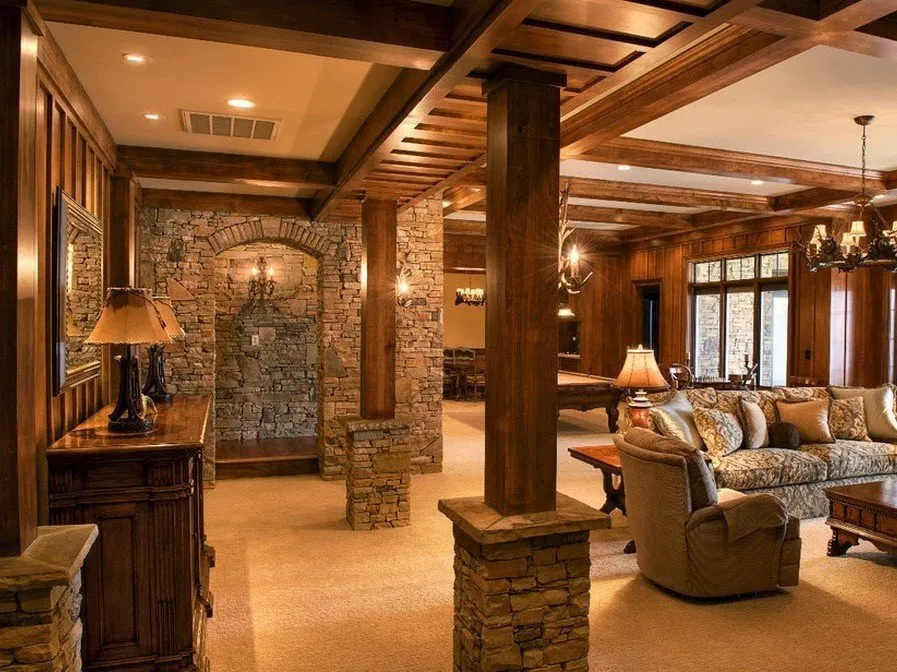
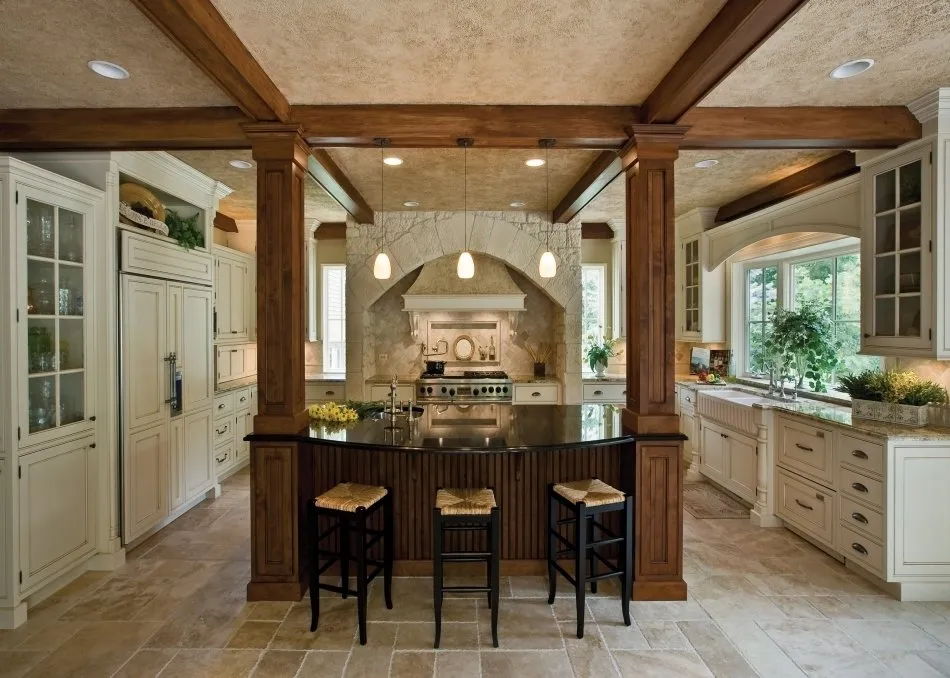
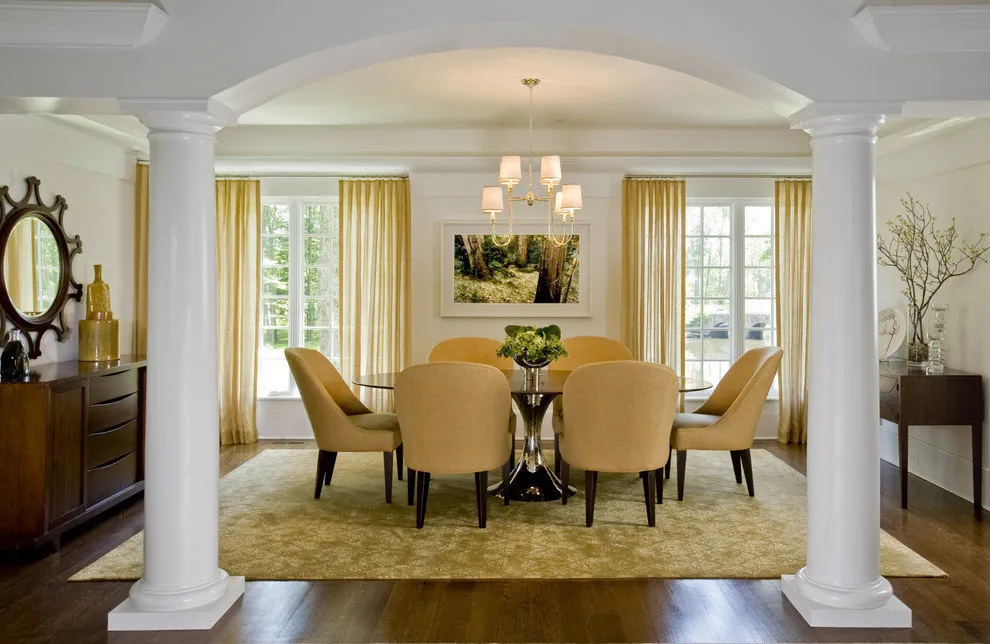
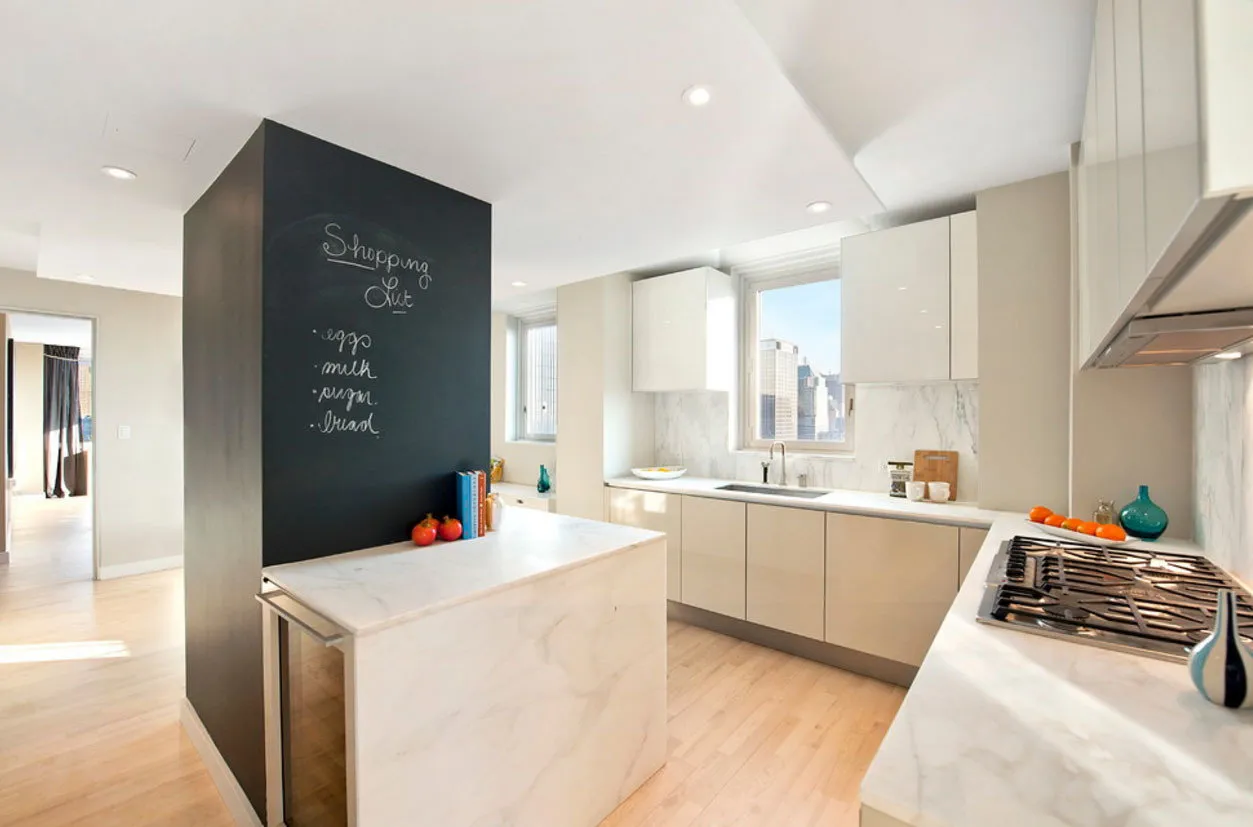
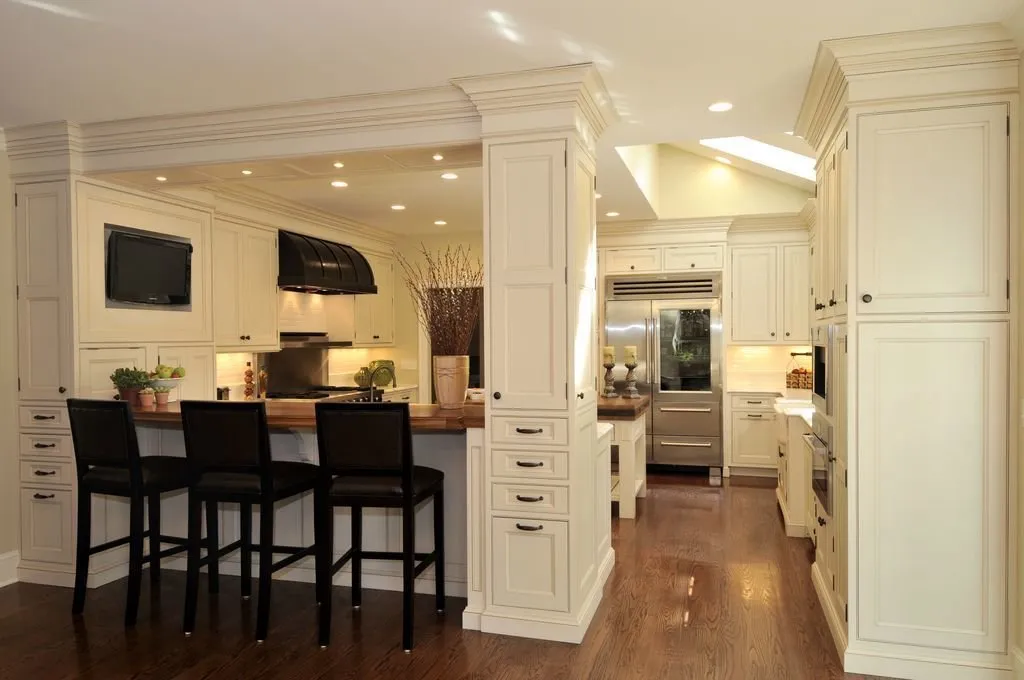
A column is a space for original design ideas, both functional and decorative. Whether to make an accent or hide it is up to you.
Need a renovation specialist?
Find verified professionals for any repair or construction job. Post your request and get offers from local experts.
You may also like
More articles:
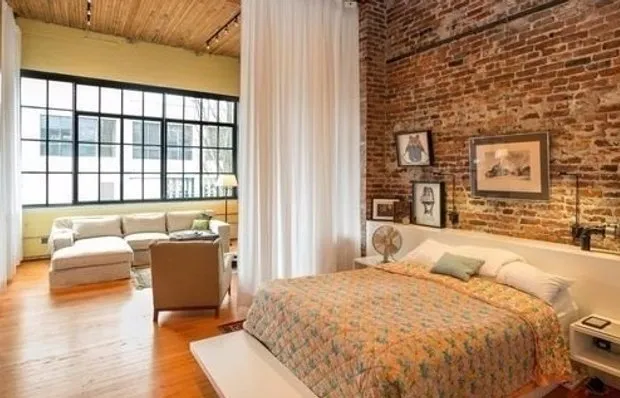 Bedroom in a Studio Apartment with Photos
Bedroom in a Studio Apartment with Photos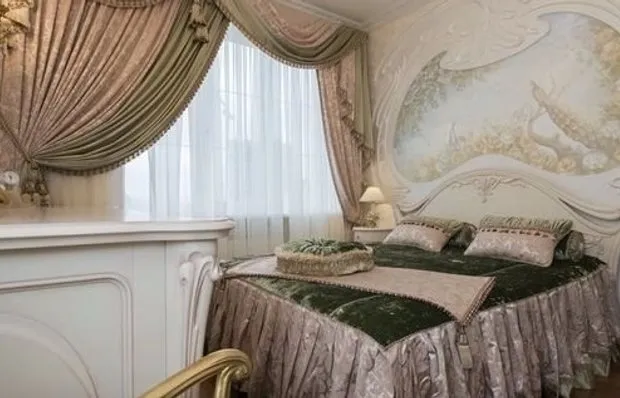 Classic Style Bedroom with Photos
Classic Style Bedroom with Photos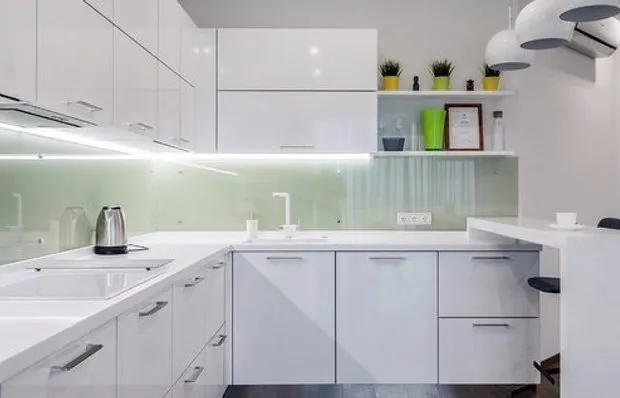 Handles for Kitchen Furniture: Photos and Tips for Selection
Handles for Kitchen Furniture: Photos and Tips for Selection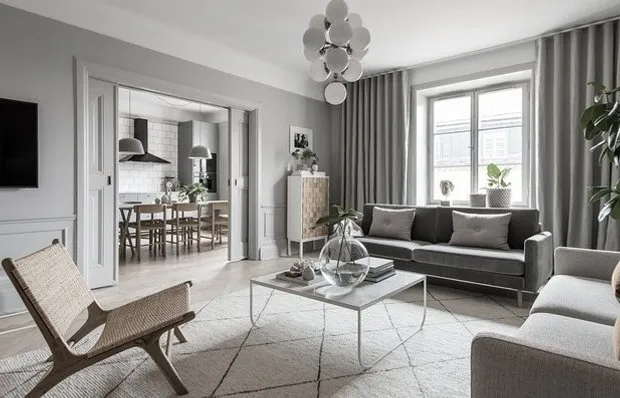 How to Brighten a Gray Interior: Example Apartment in Sweden
How to Brighten a Gray Interior: Example Apartment in Sweden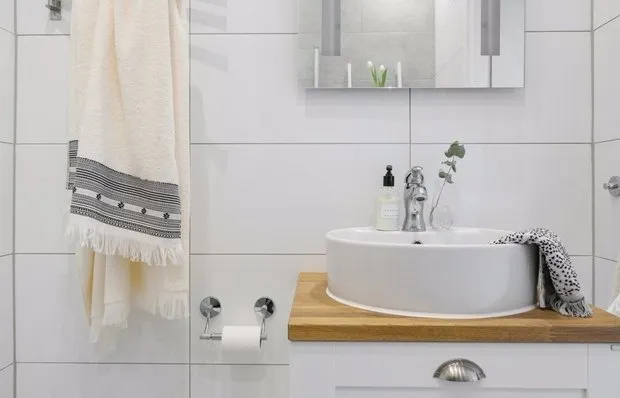 Countertop Sink for Bathroom: 55+ Interior Photos
Countertop Sink for Bathroom: 55+ Interior Photos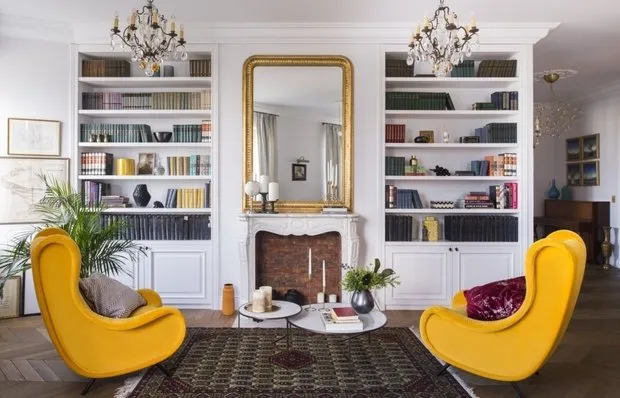 How to Create a Happy Interior?
How to Create a Happy Interior?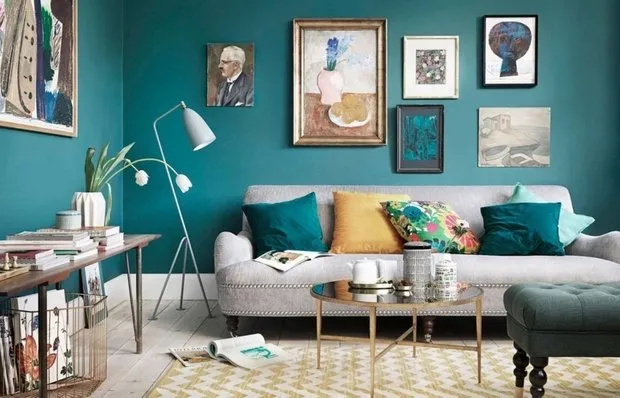 How to Choose a Baseboard: 5 Fast Tips from a Professional
How to Choose a Baseboard: 5 Fast Tips from a Professional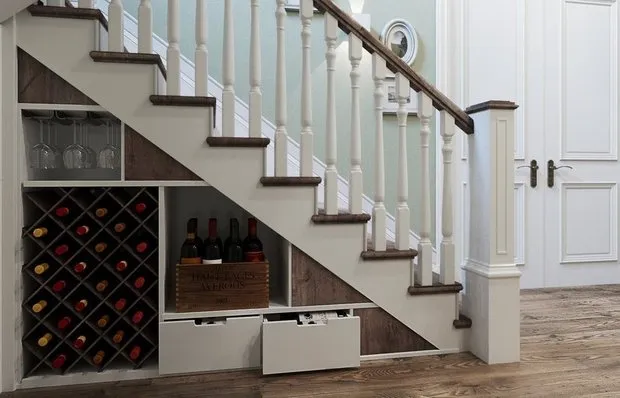 Staircase Railings for Private Homes: Design Ideas and Decoration
Staircase Railings for Private Homes: Design Ideas and Decoration